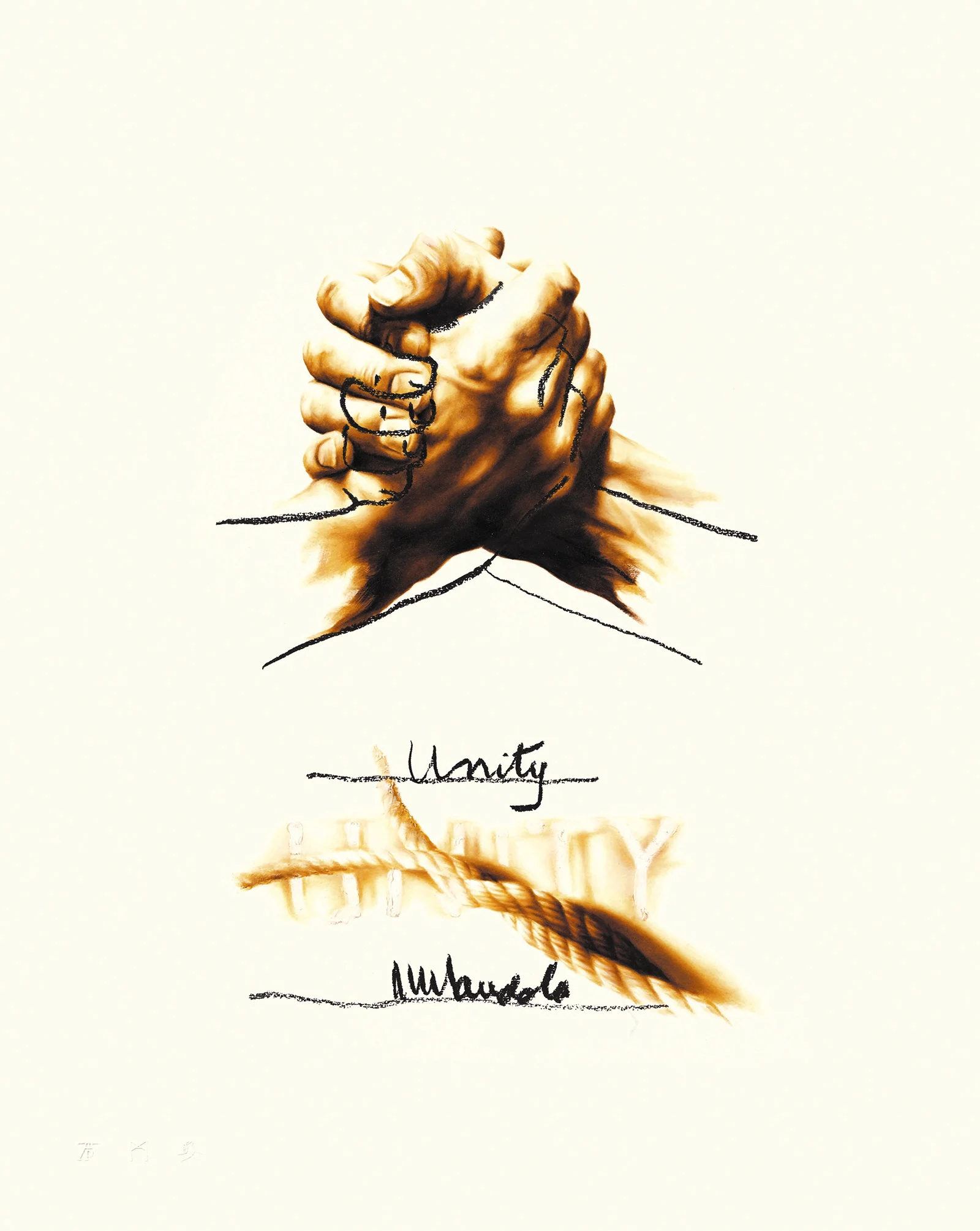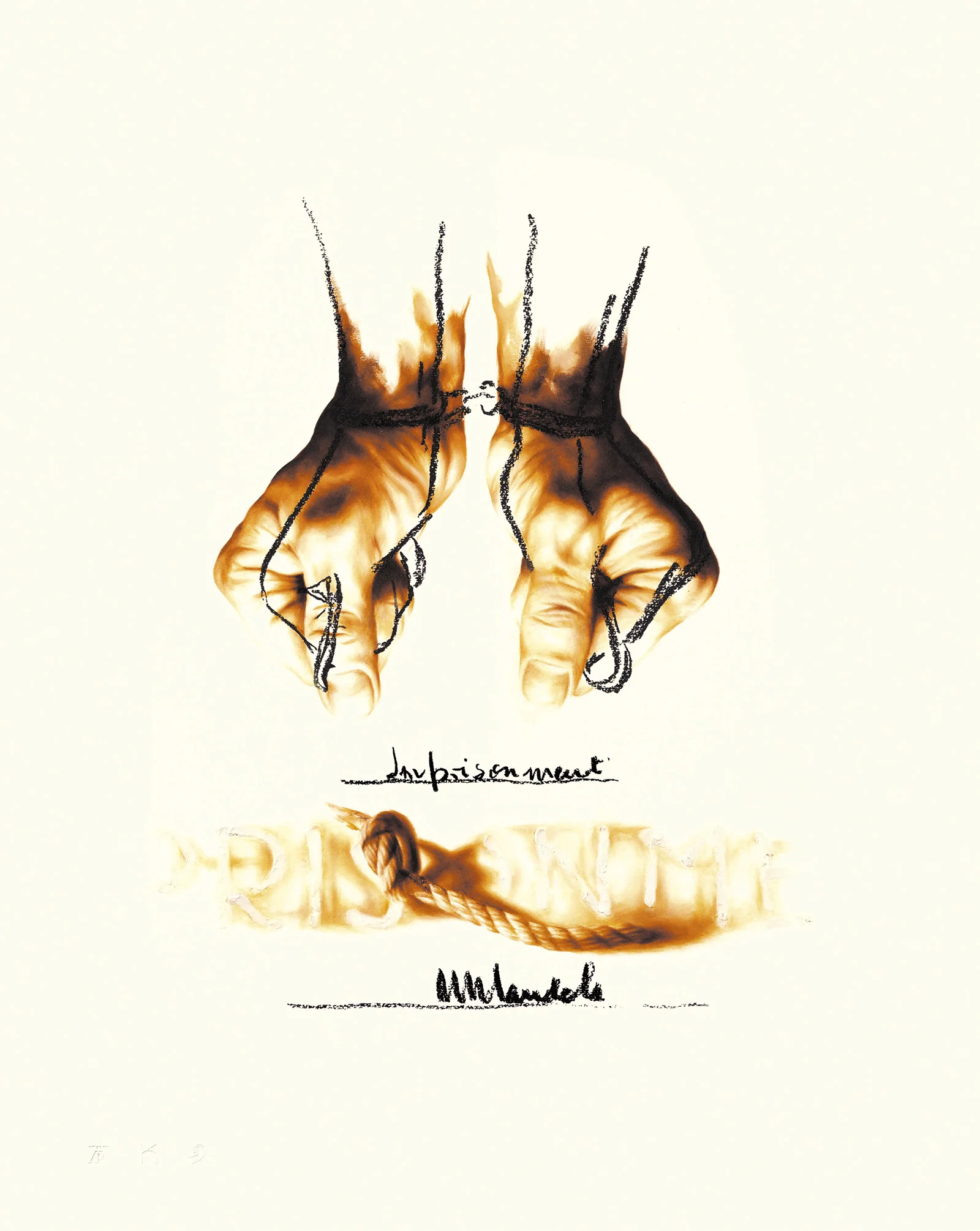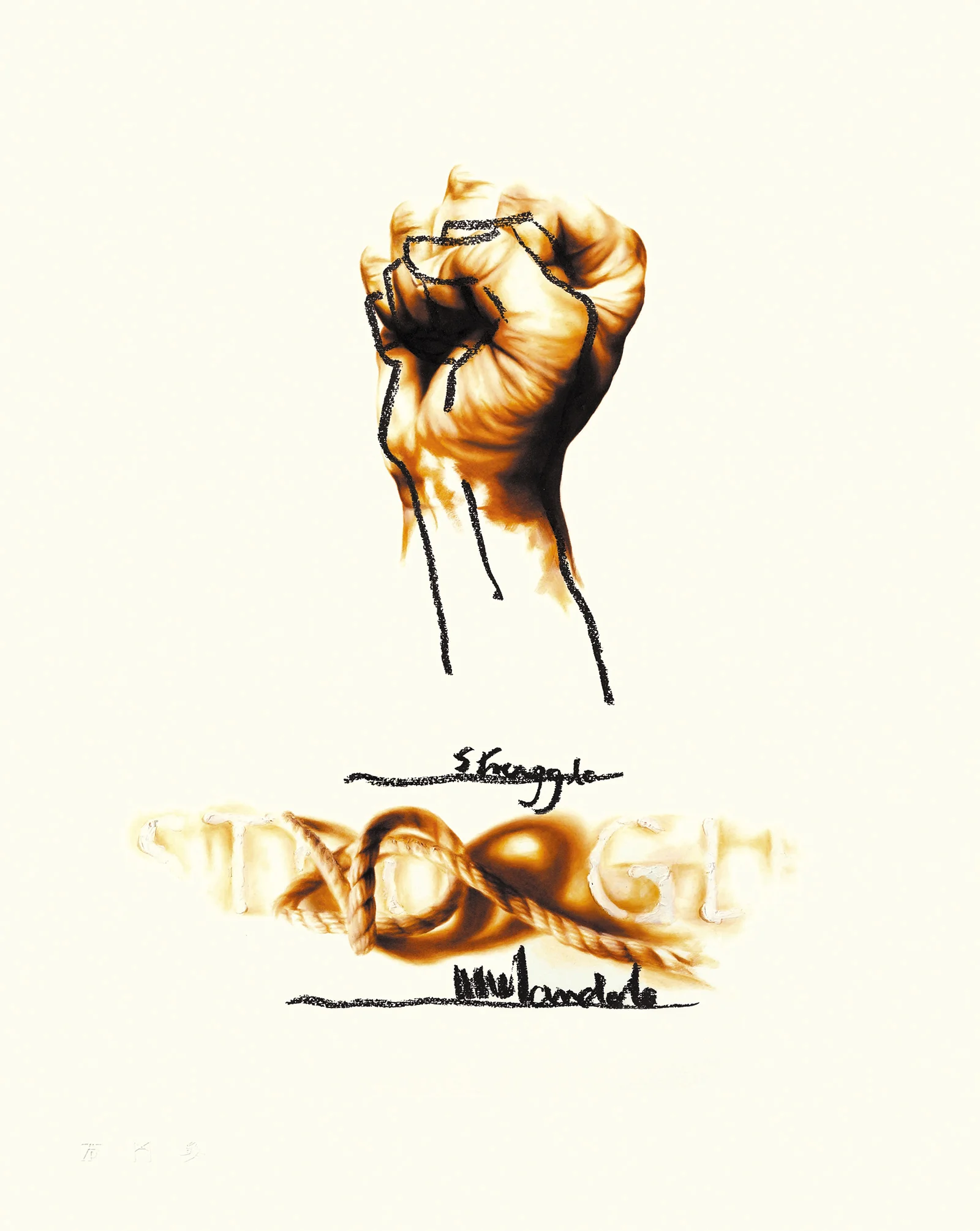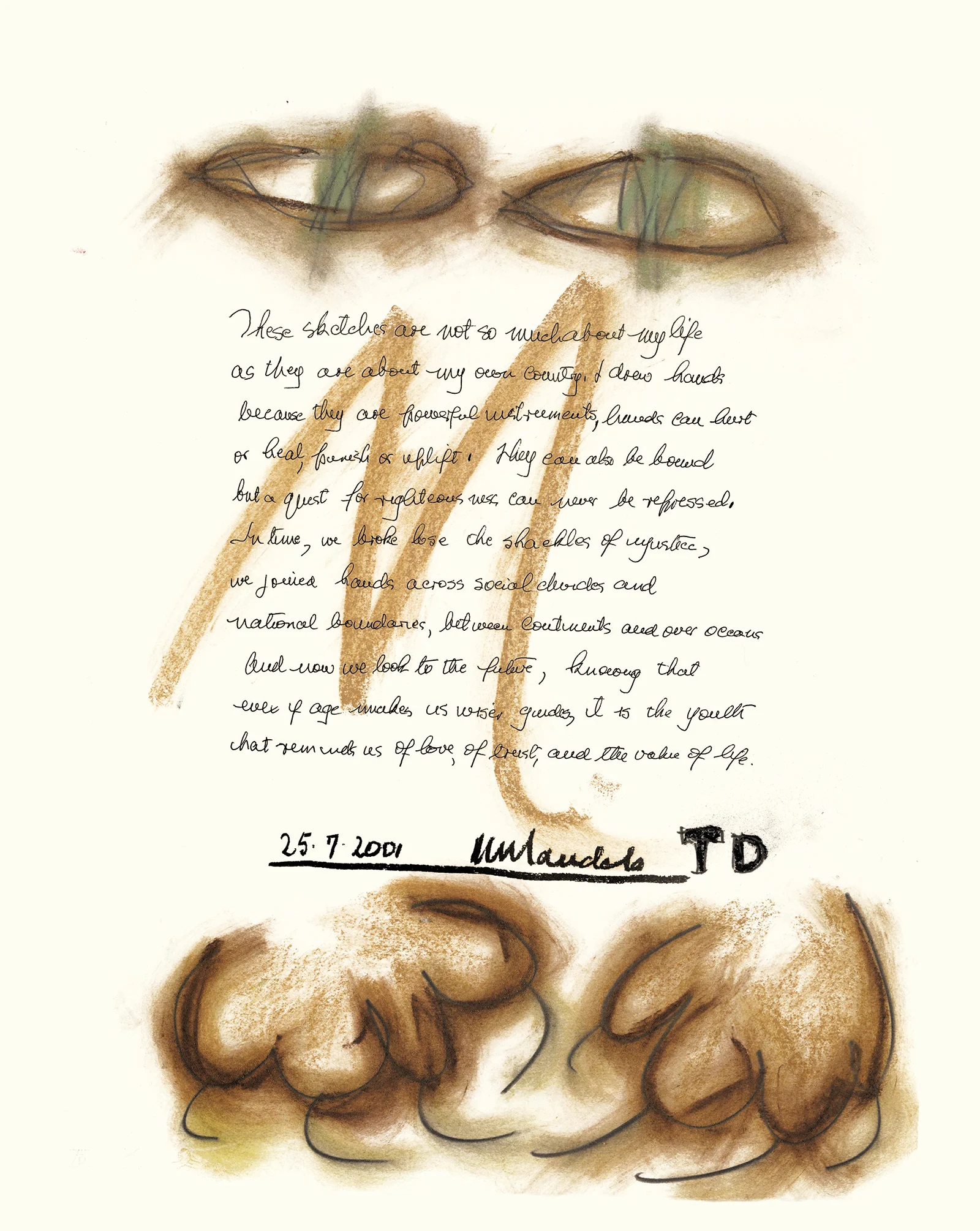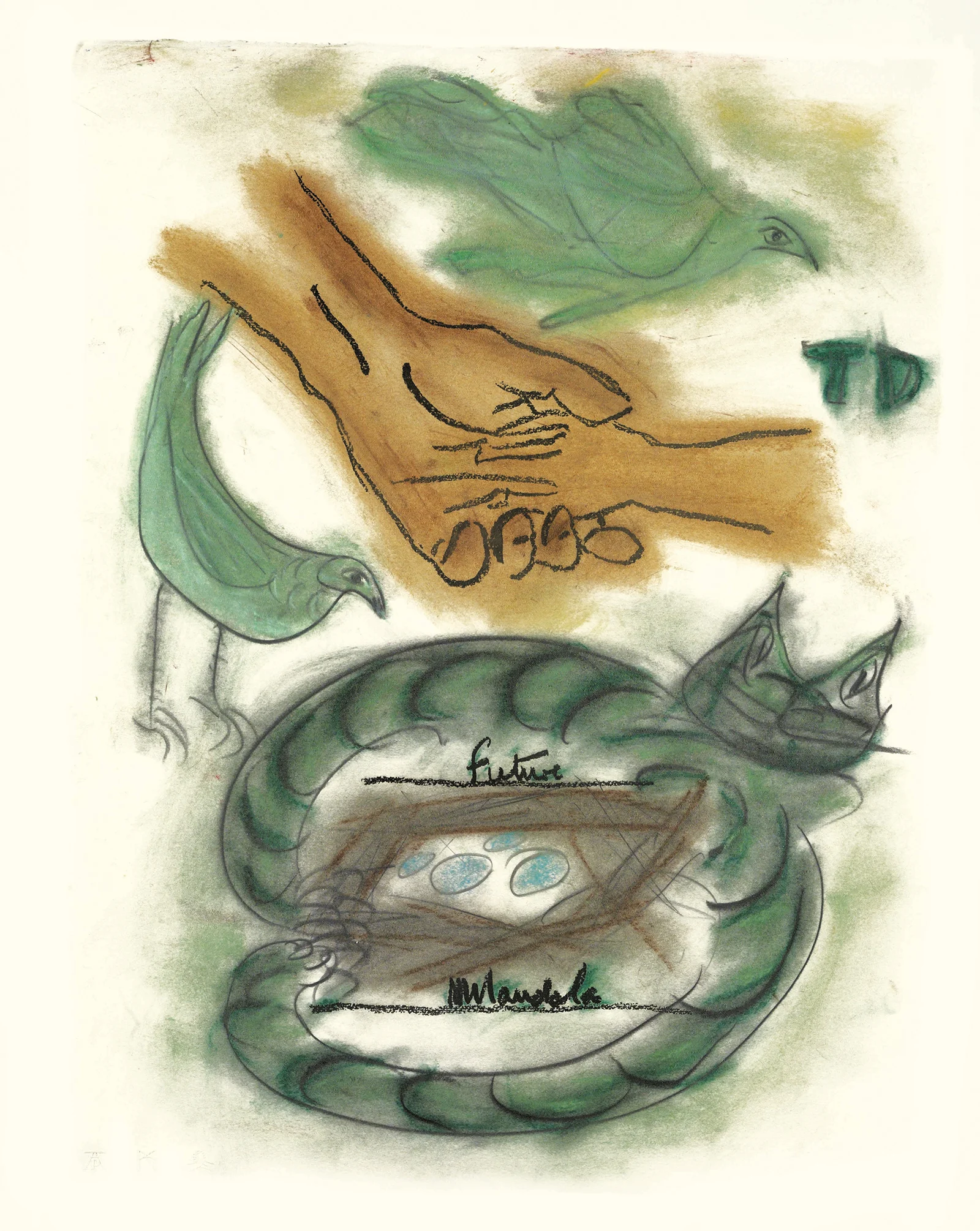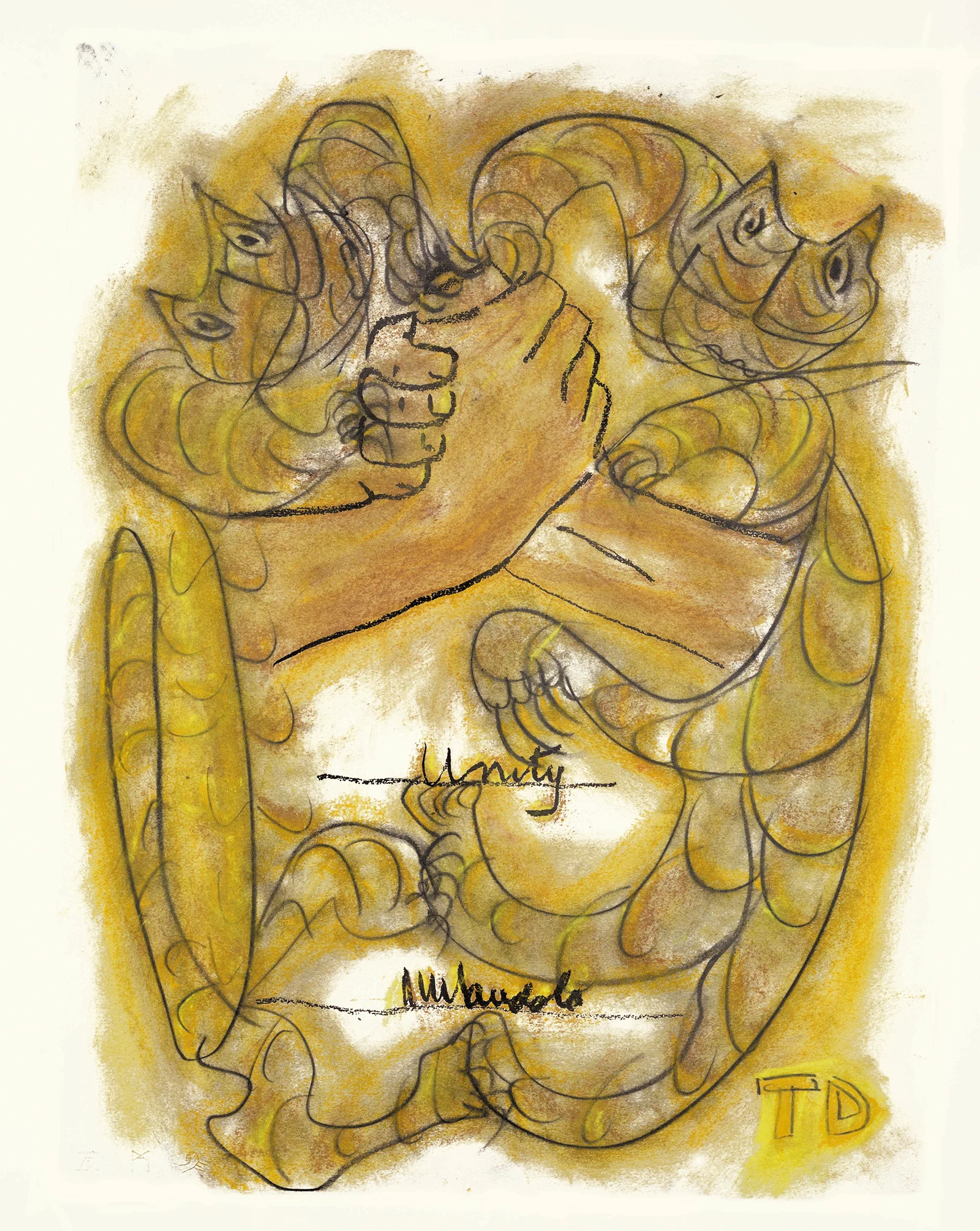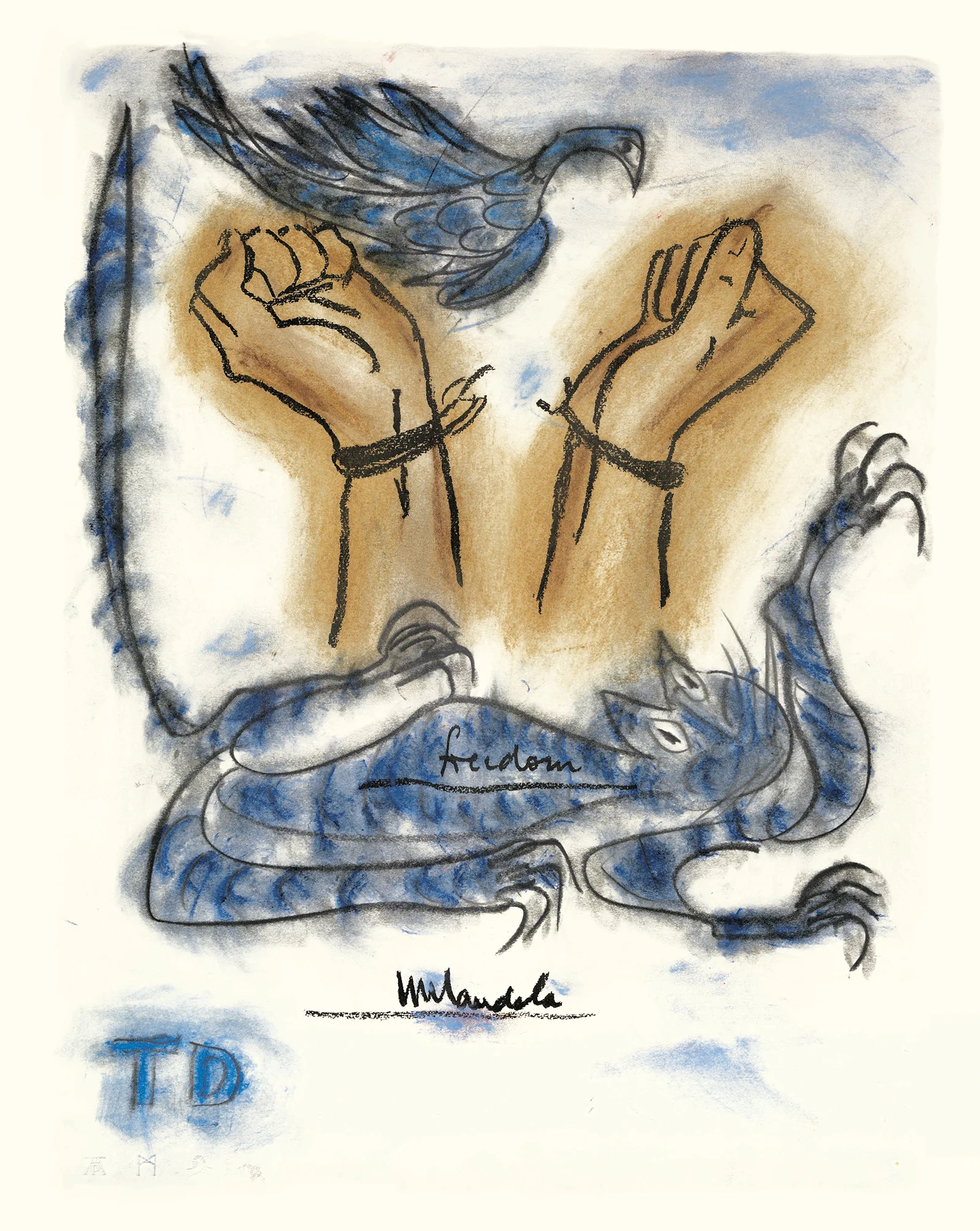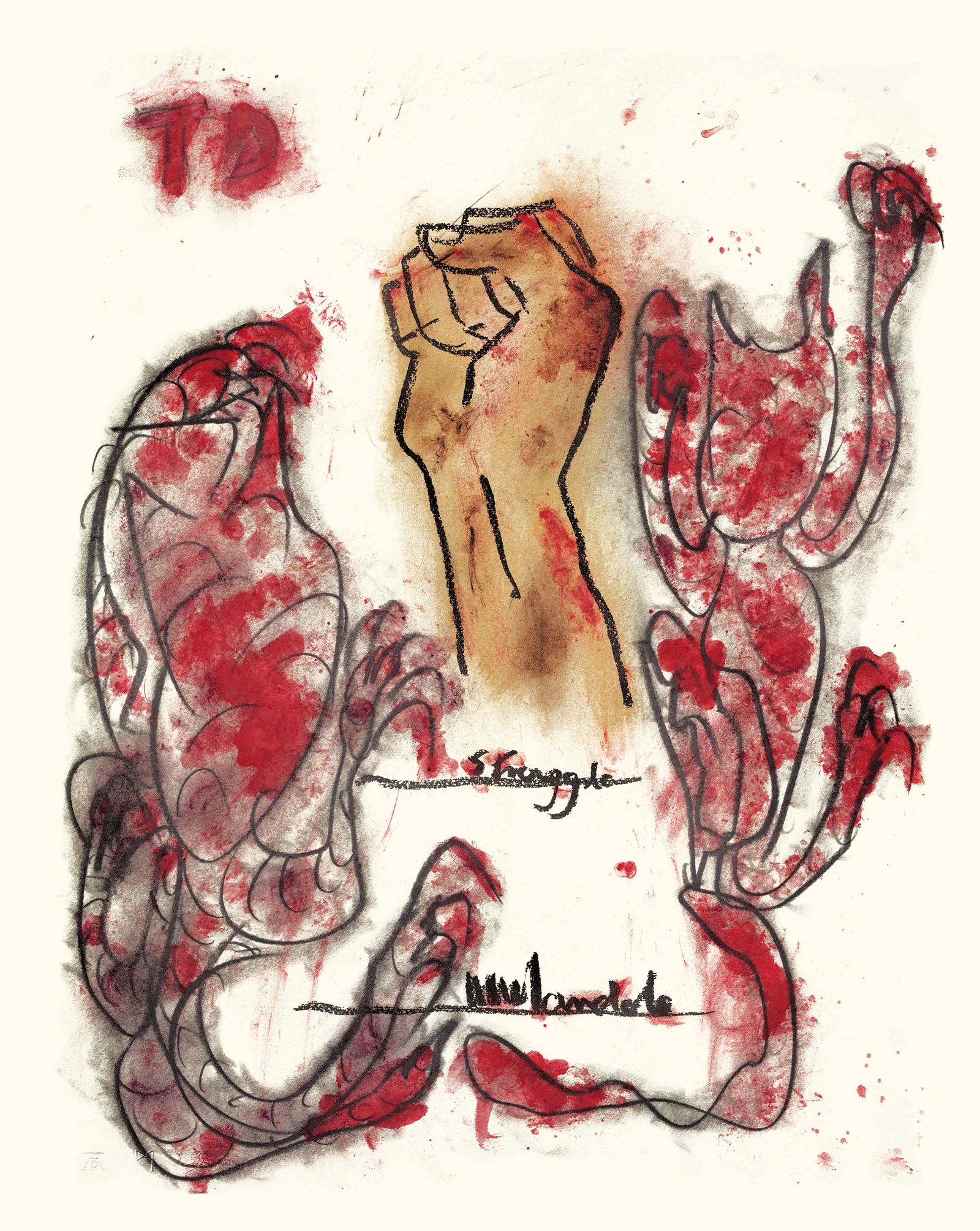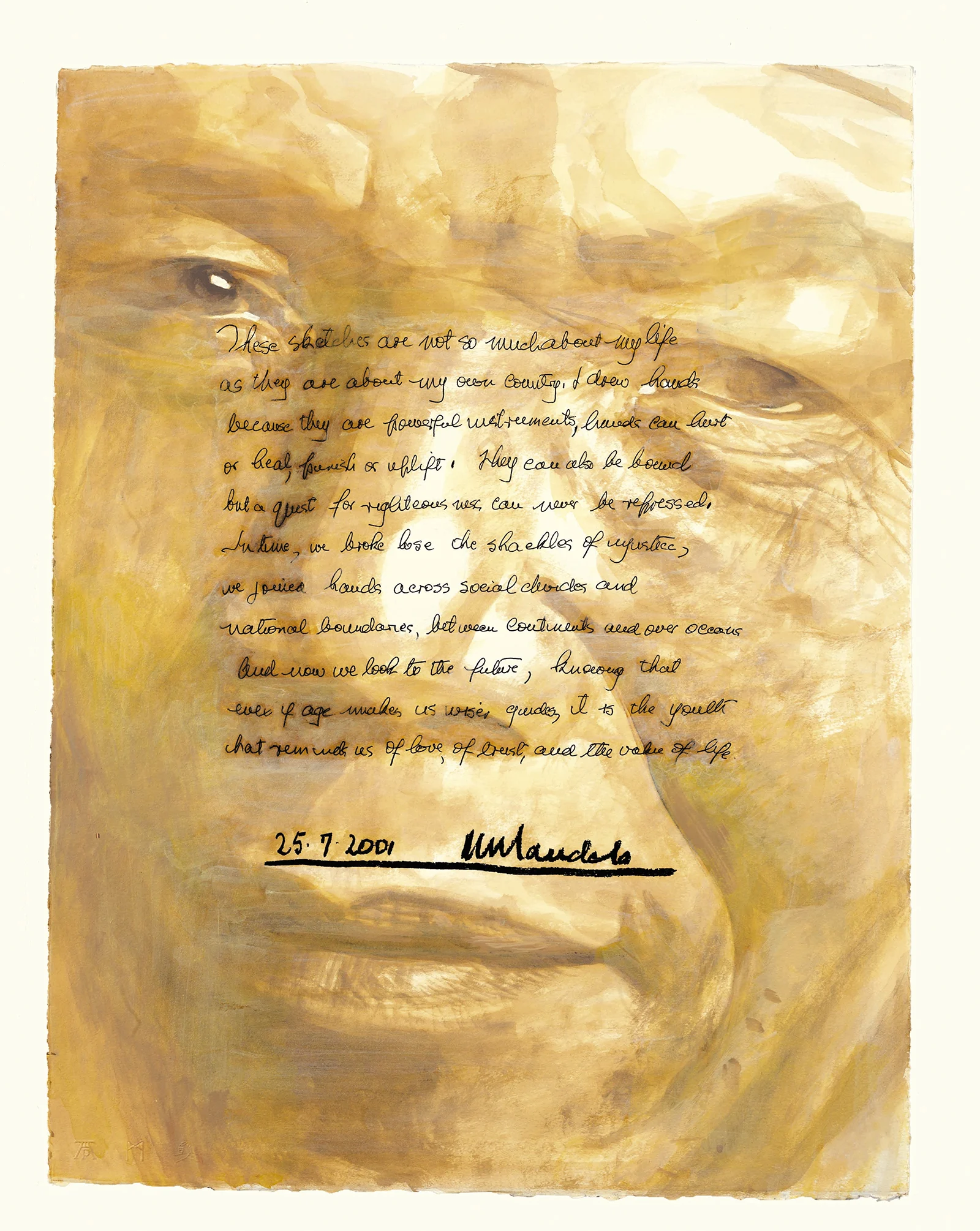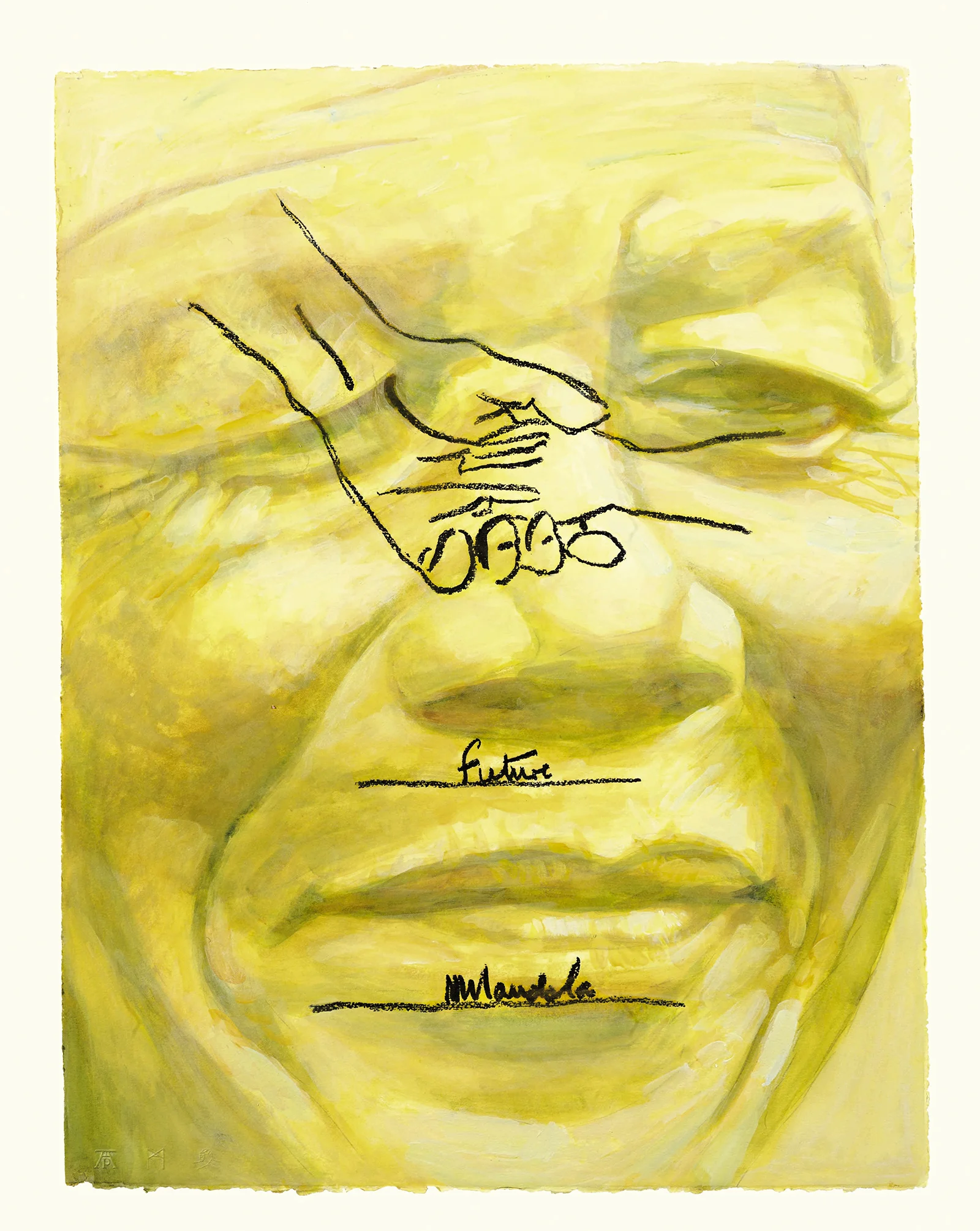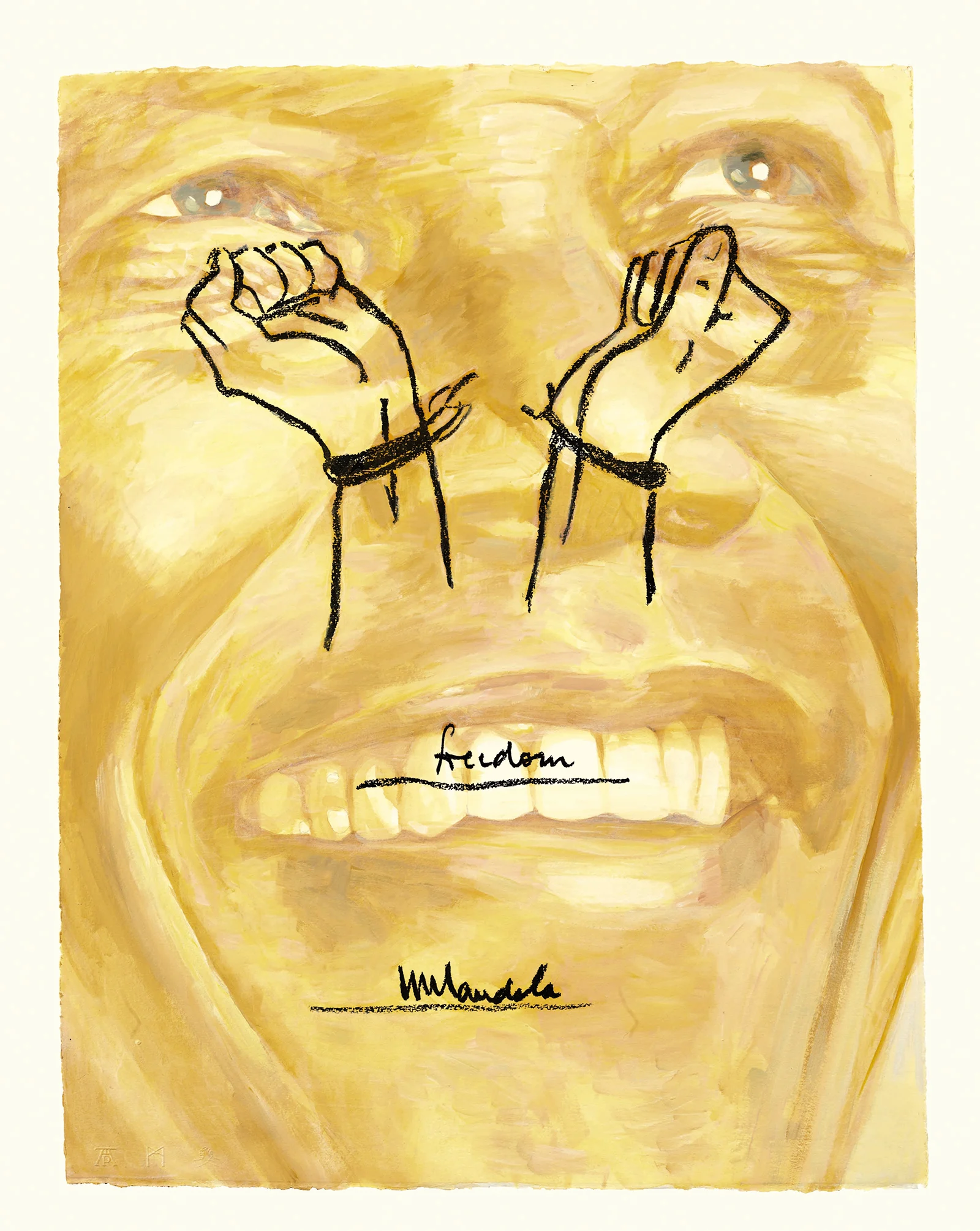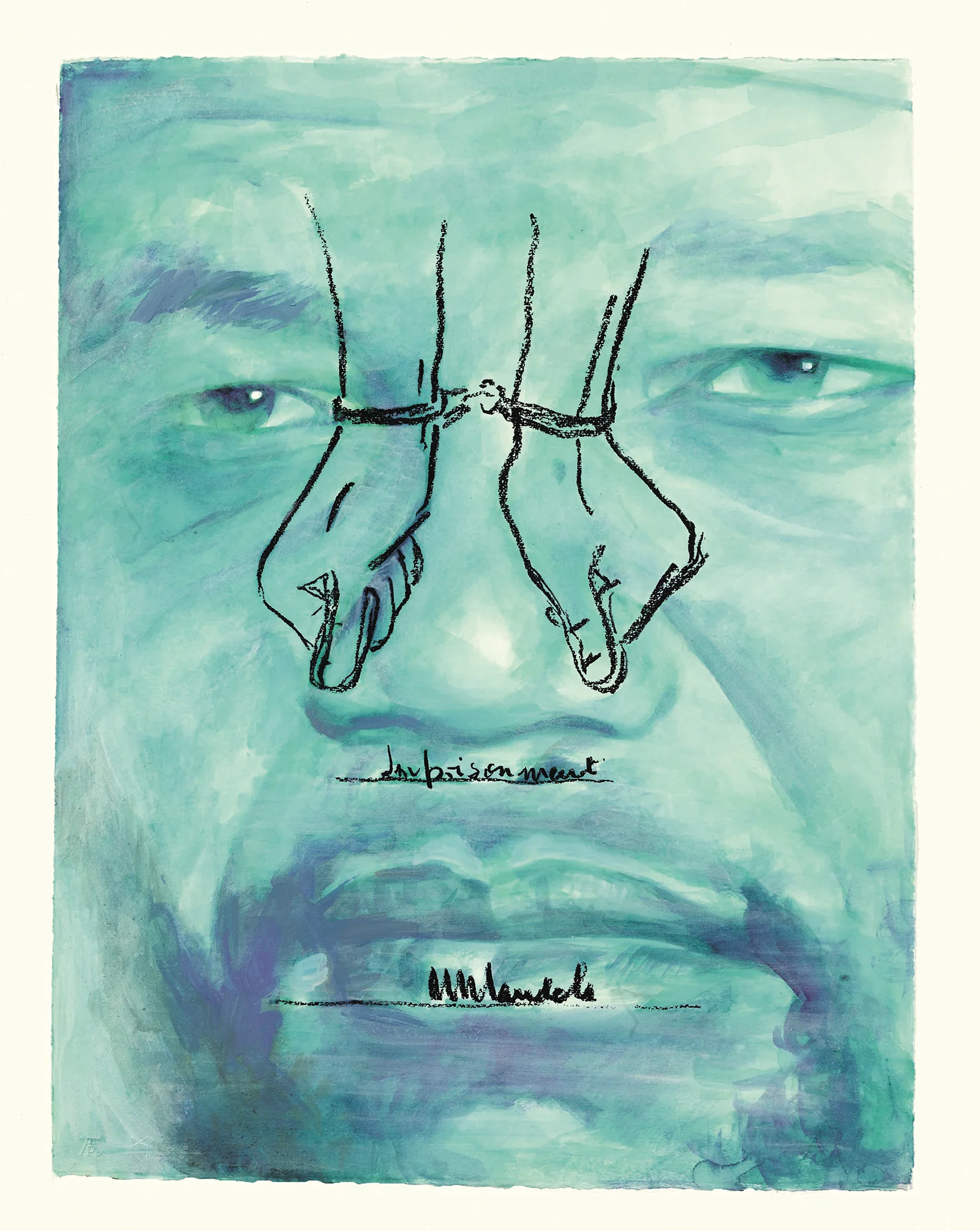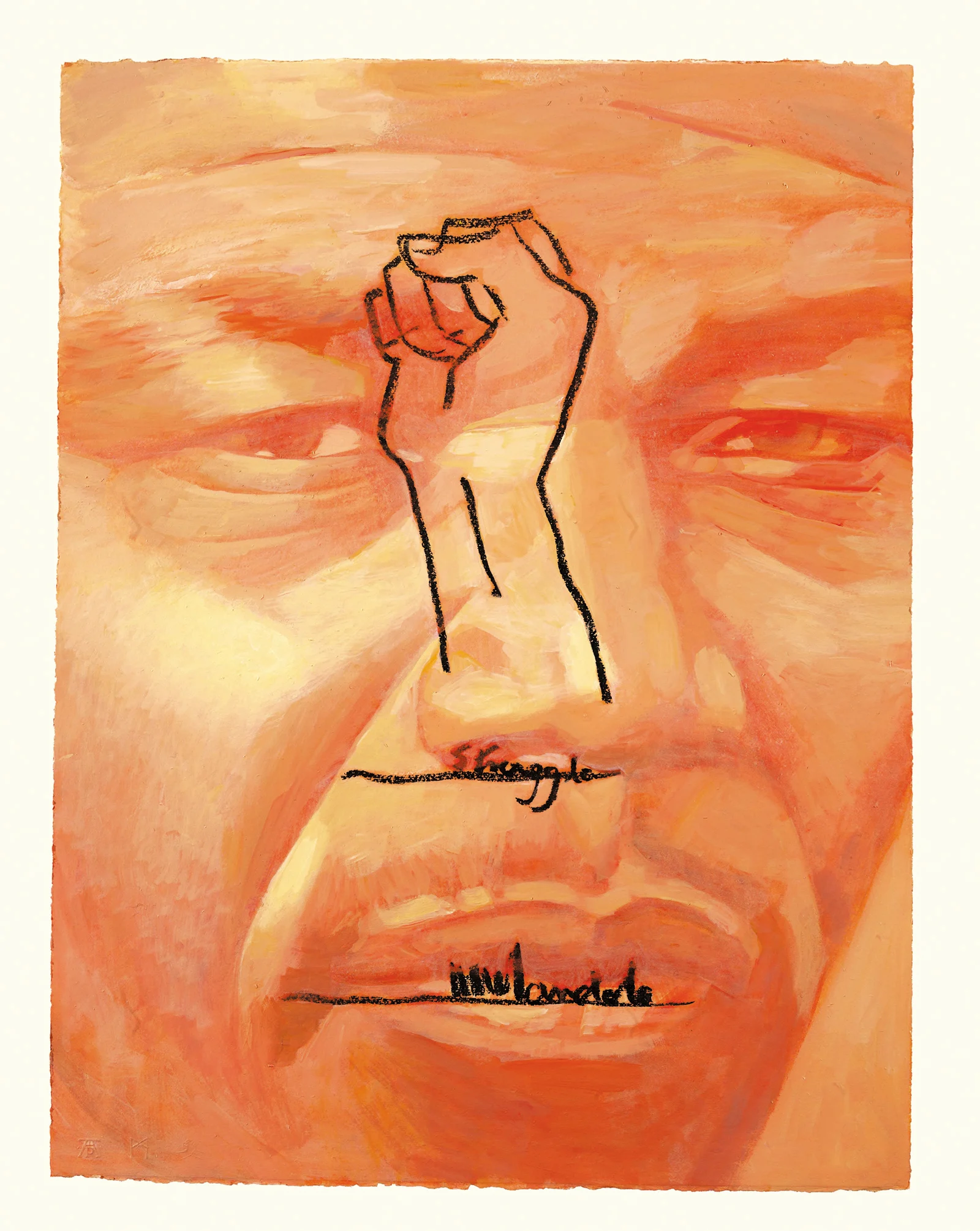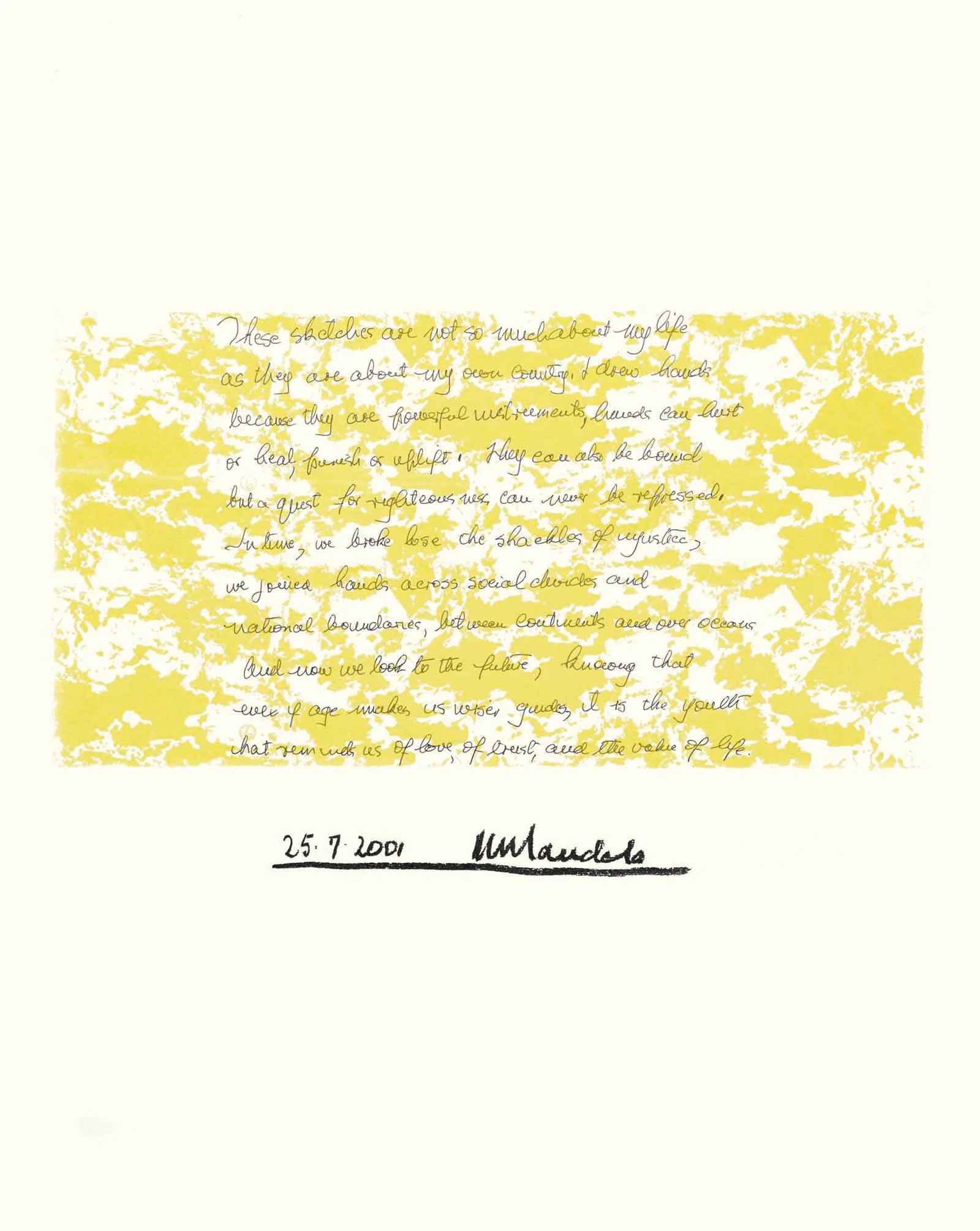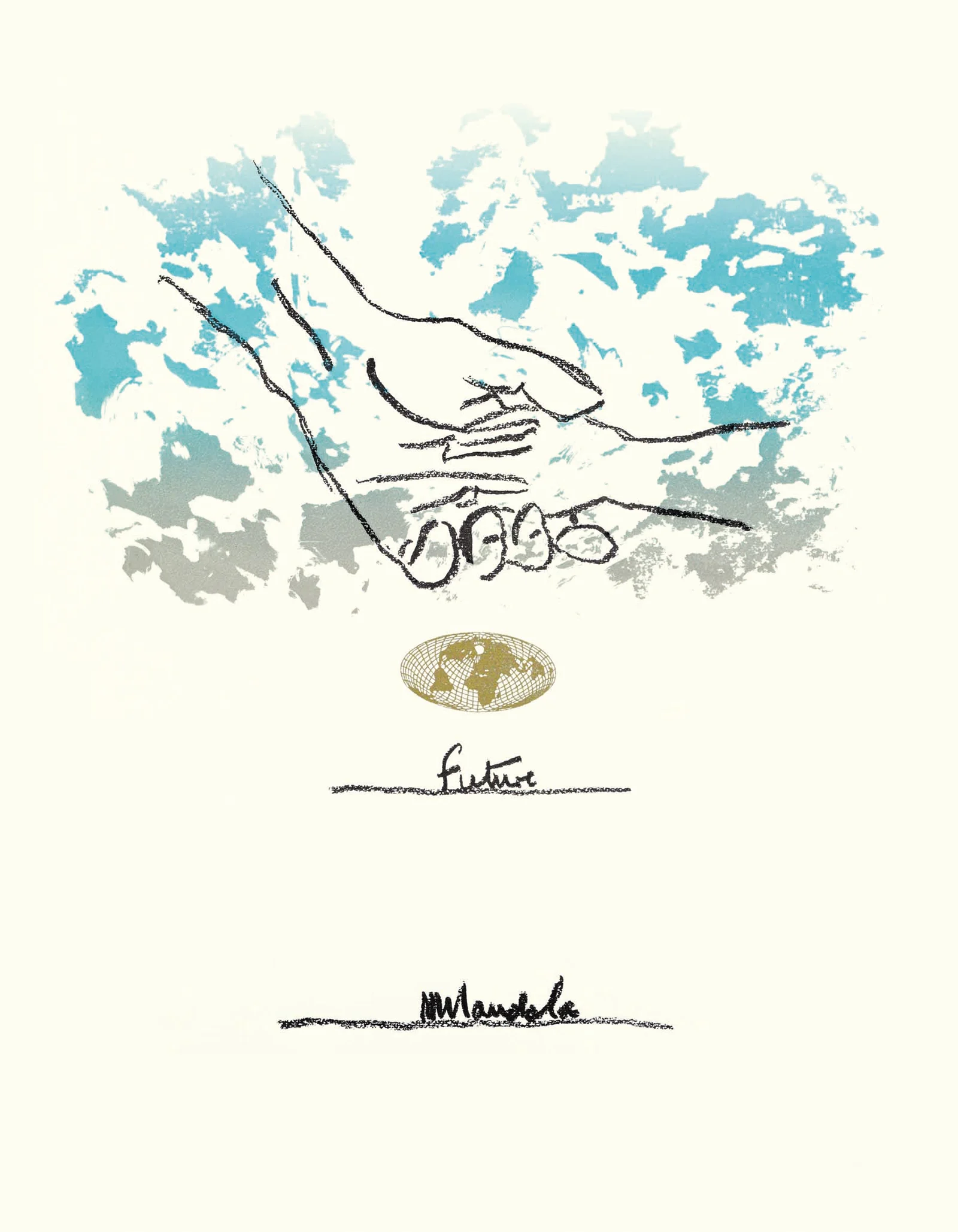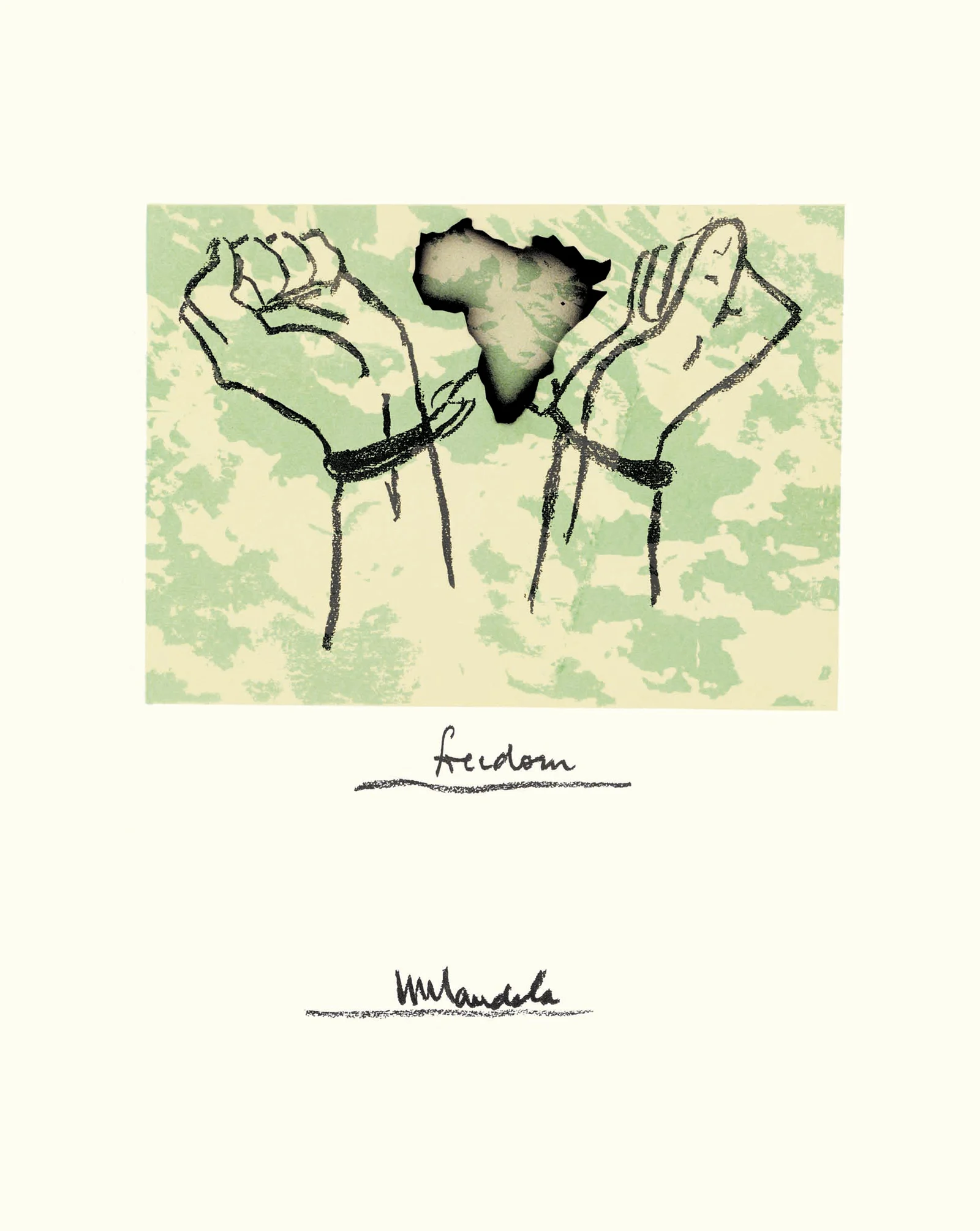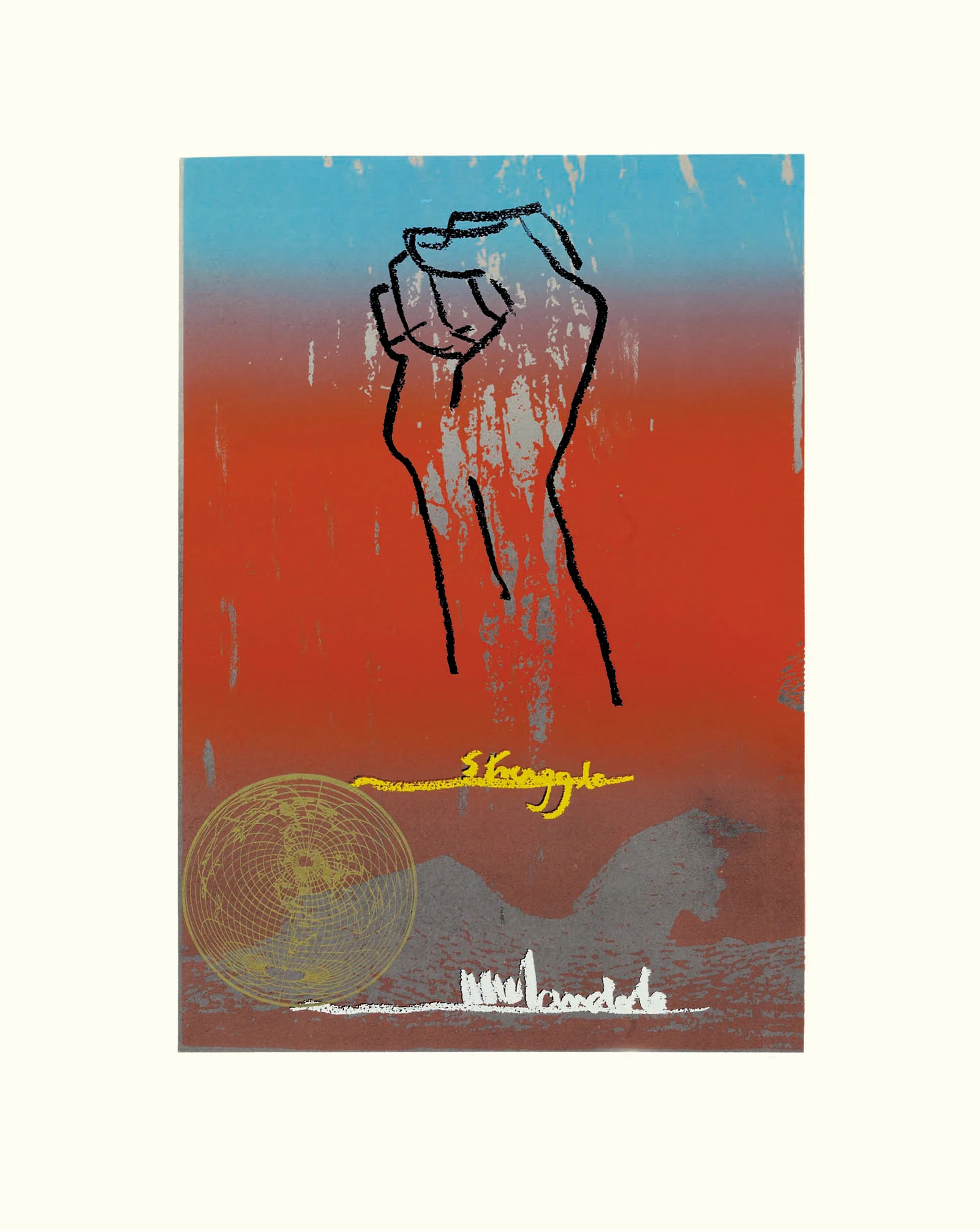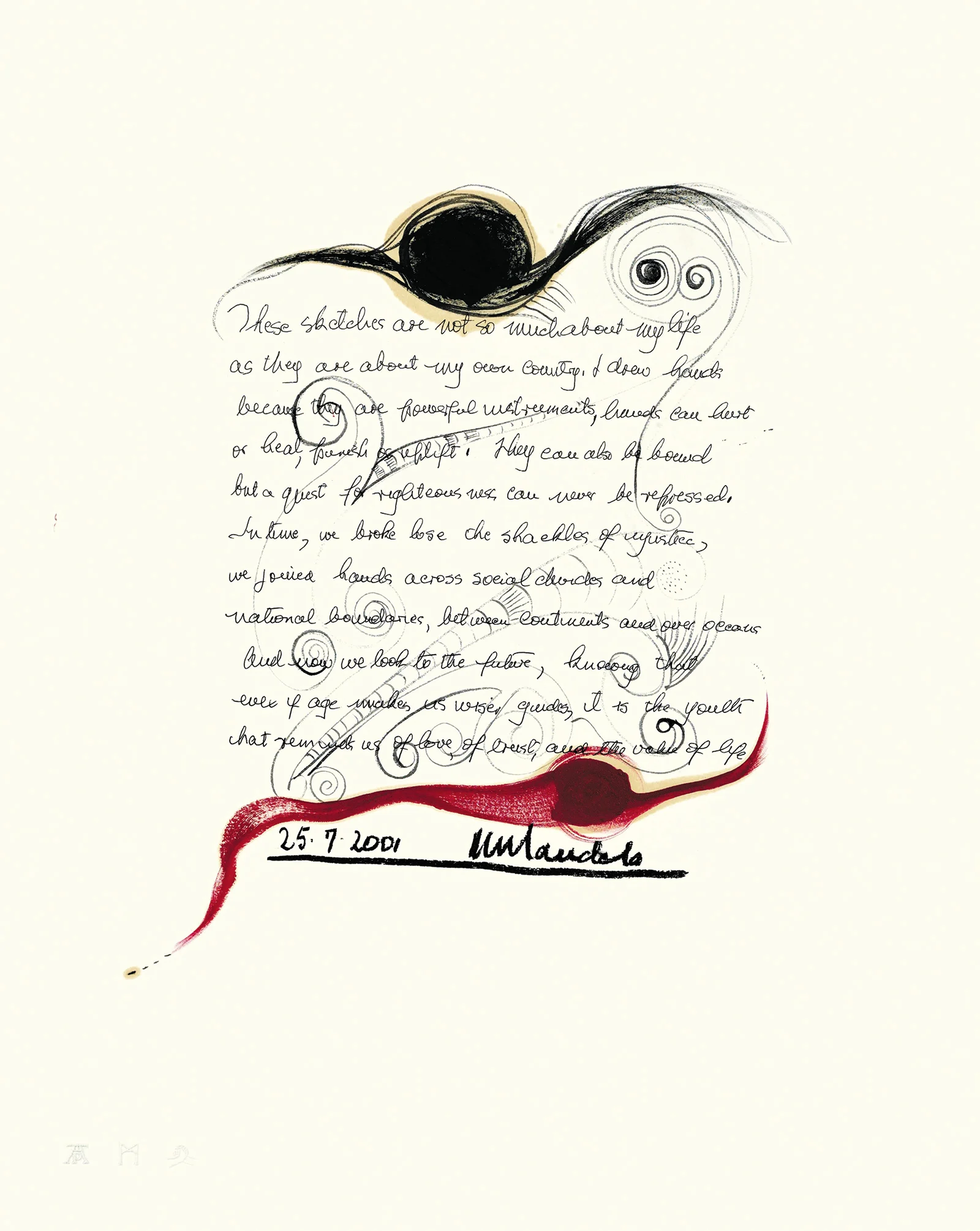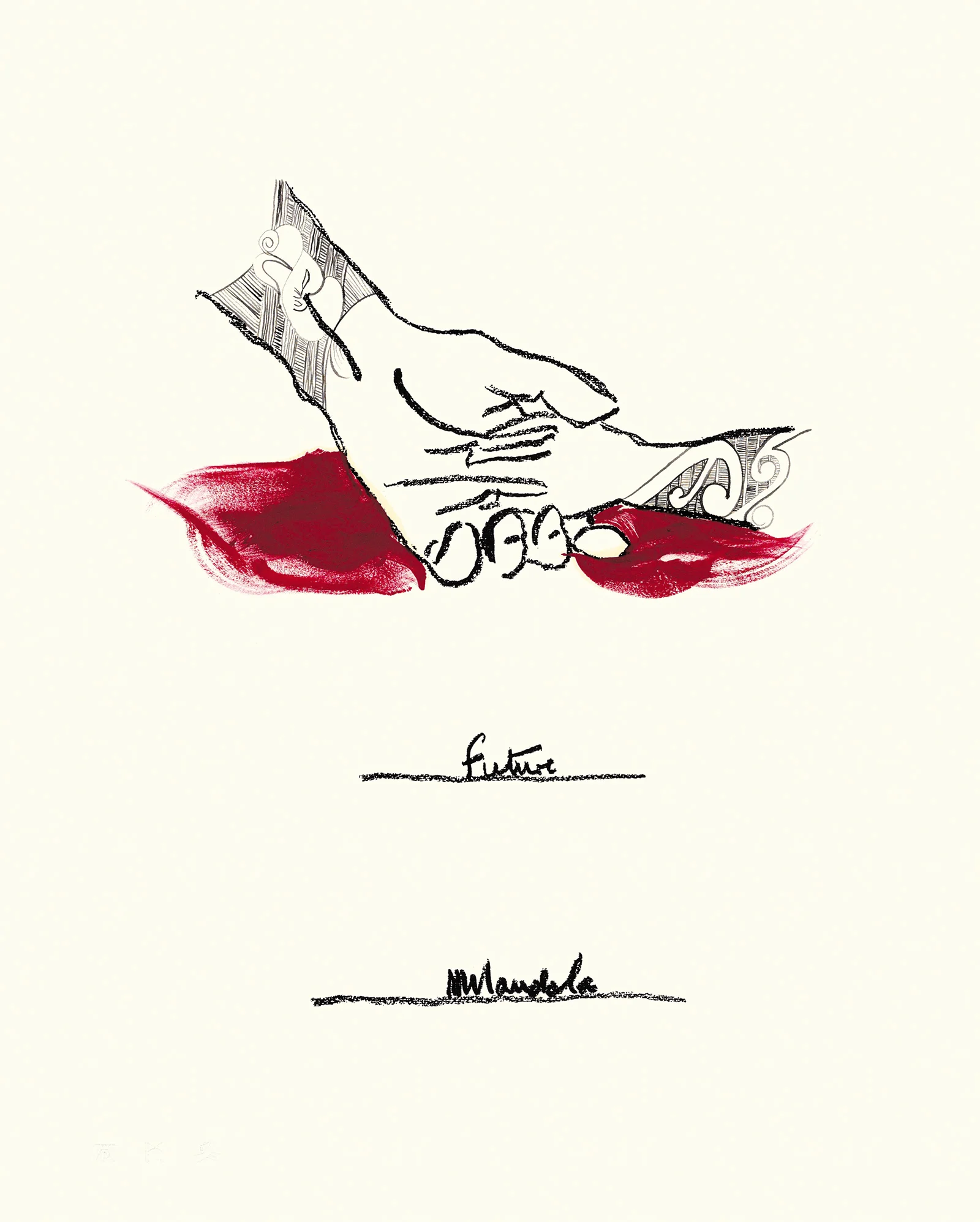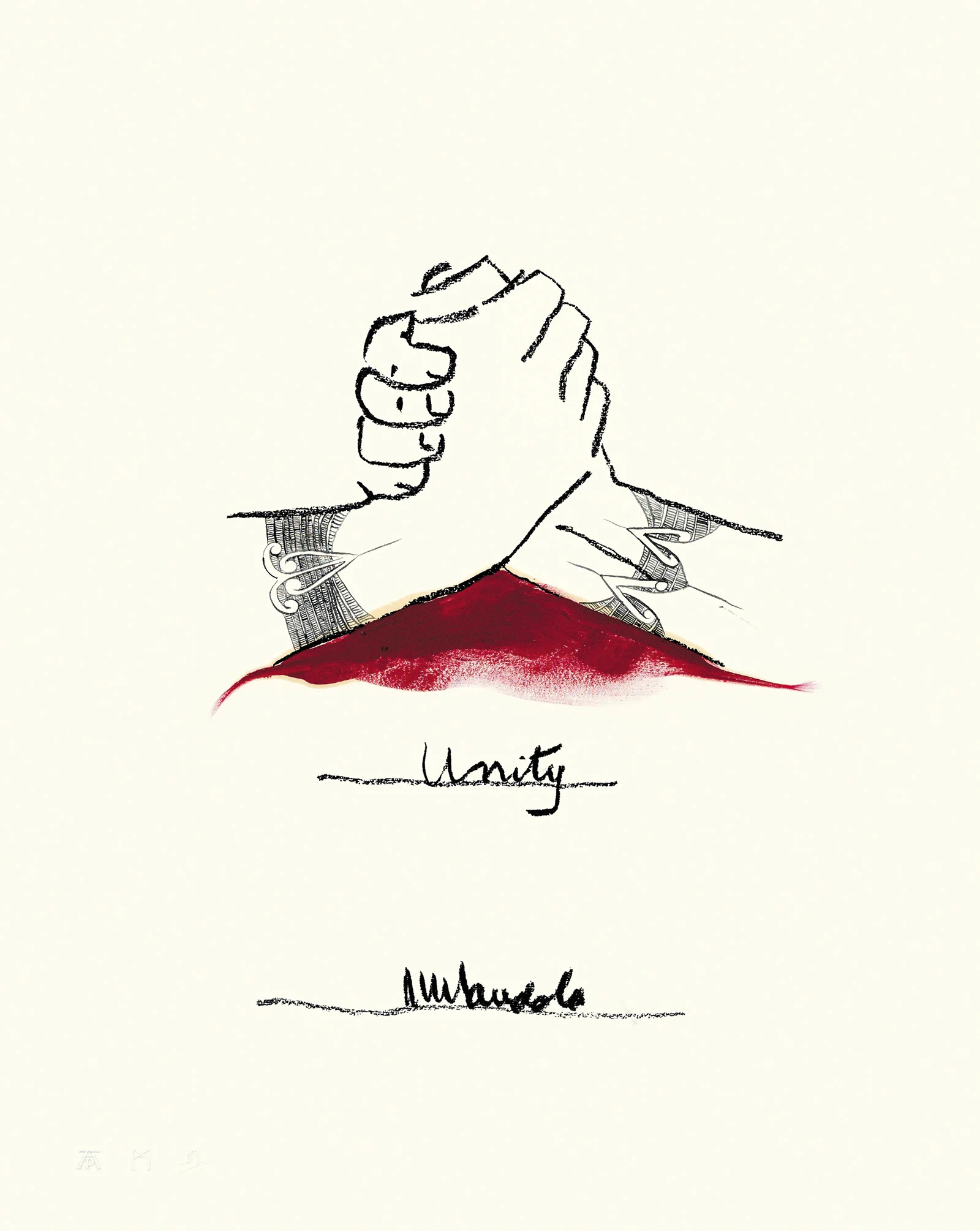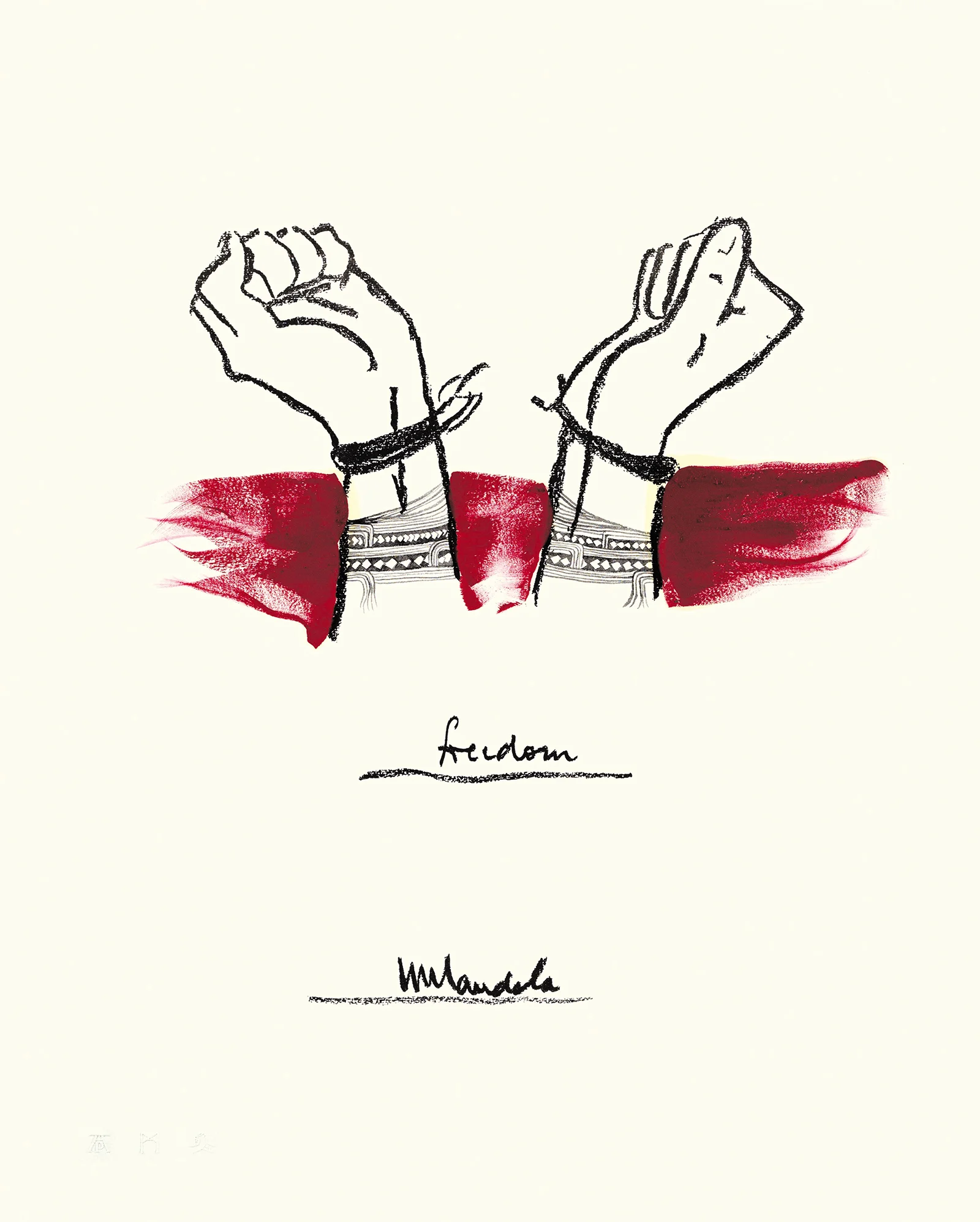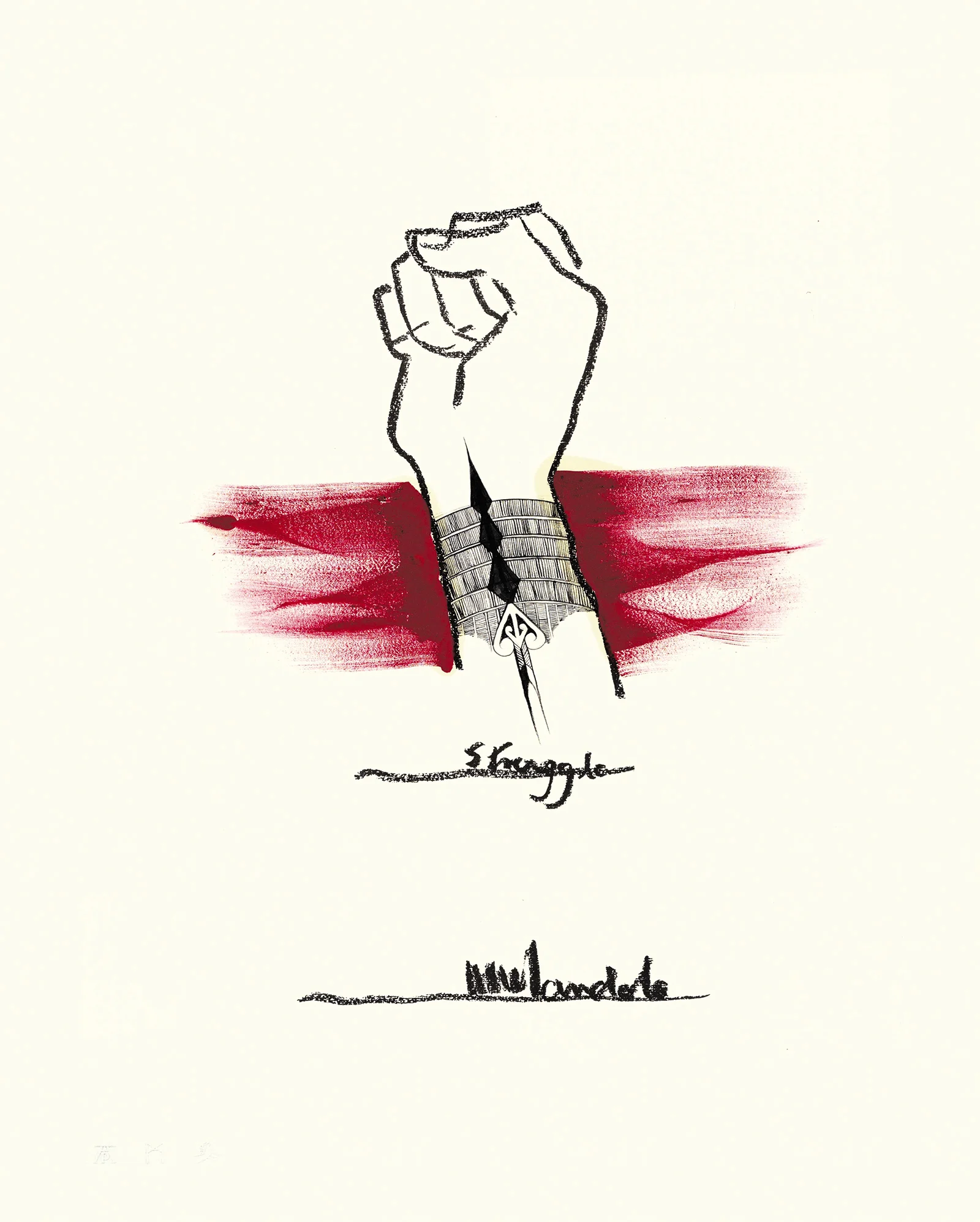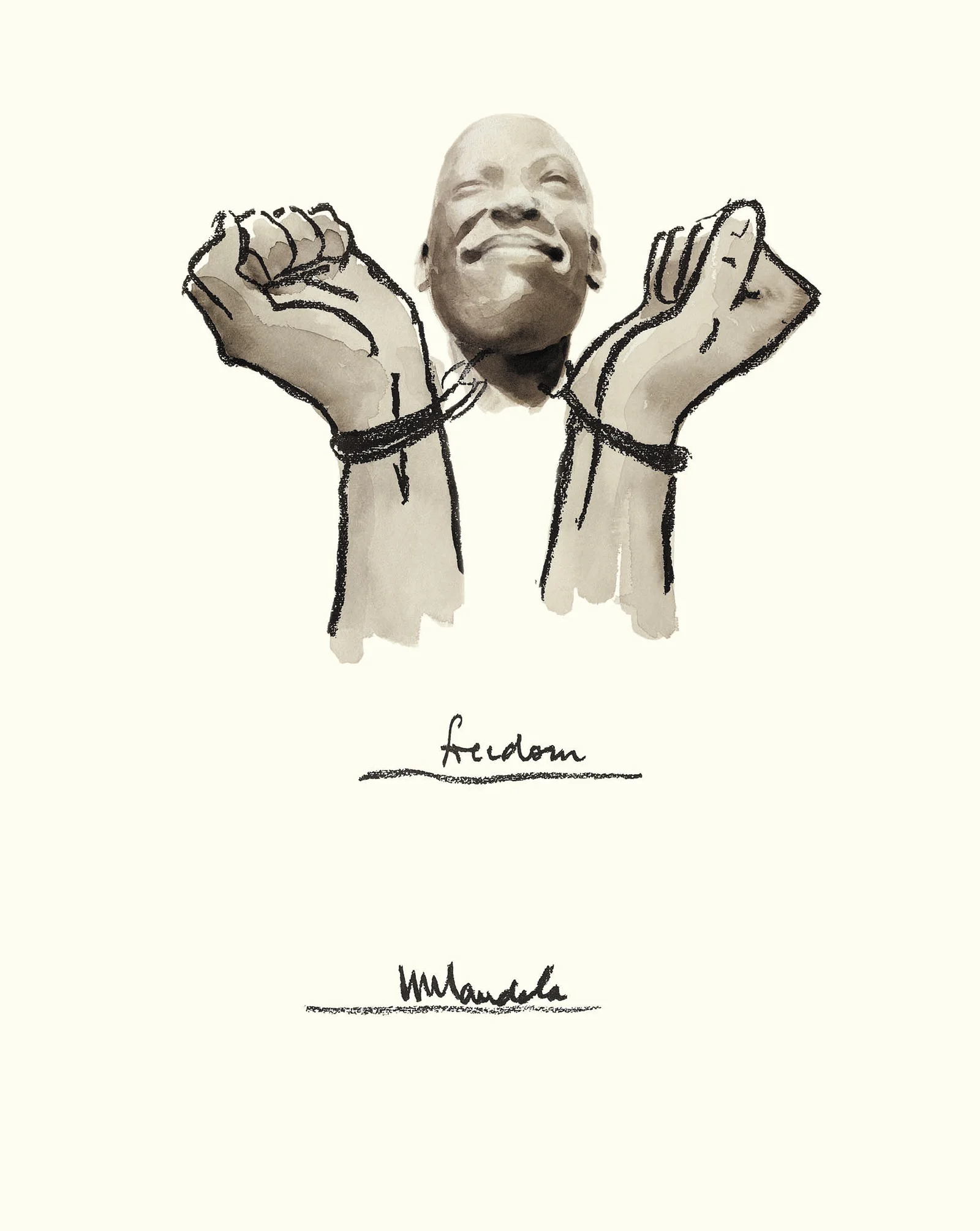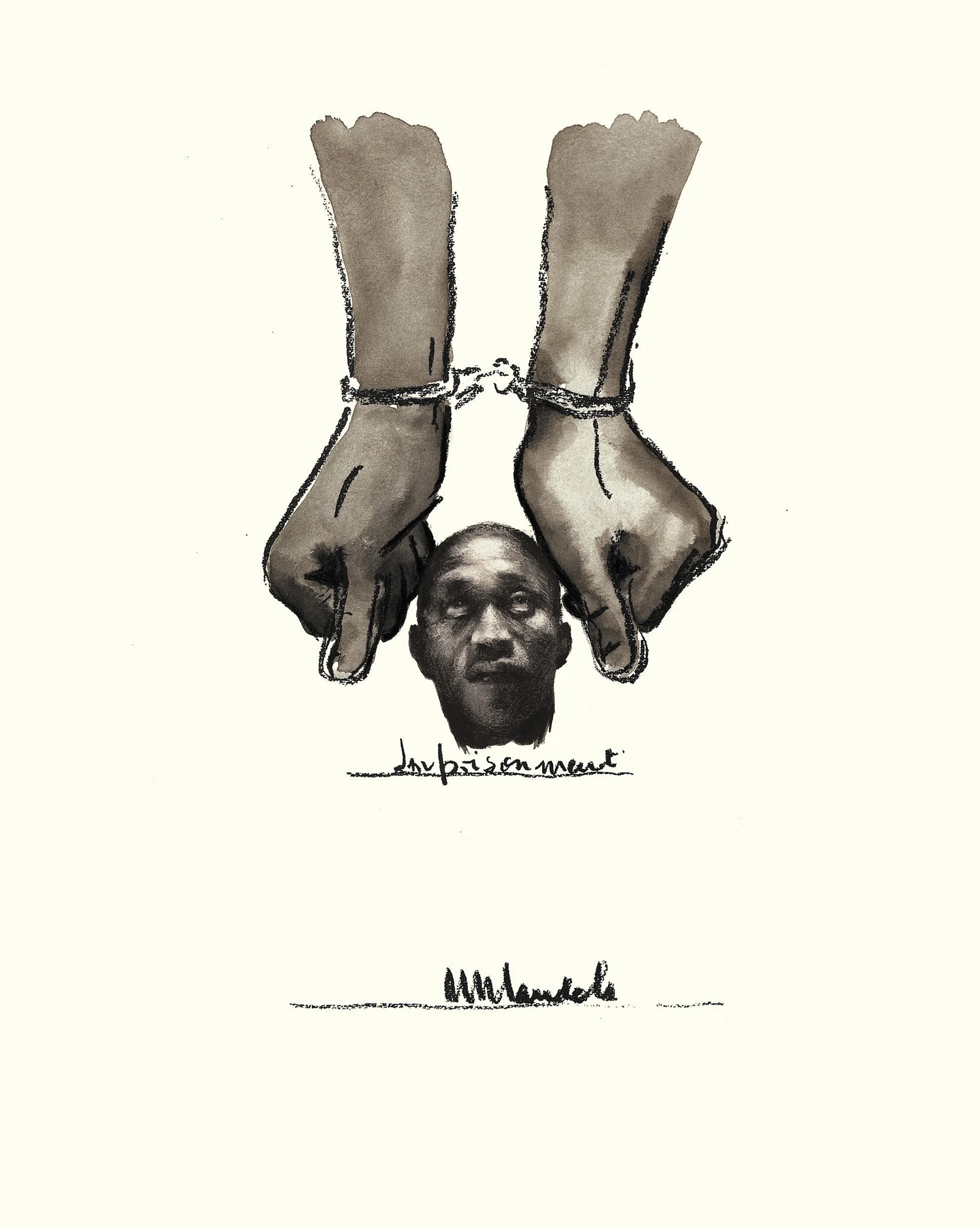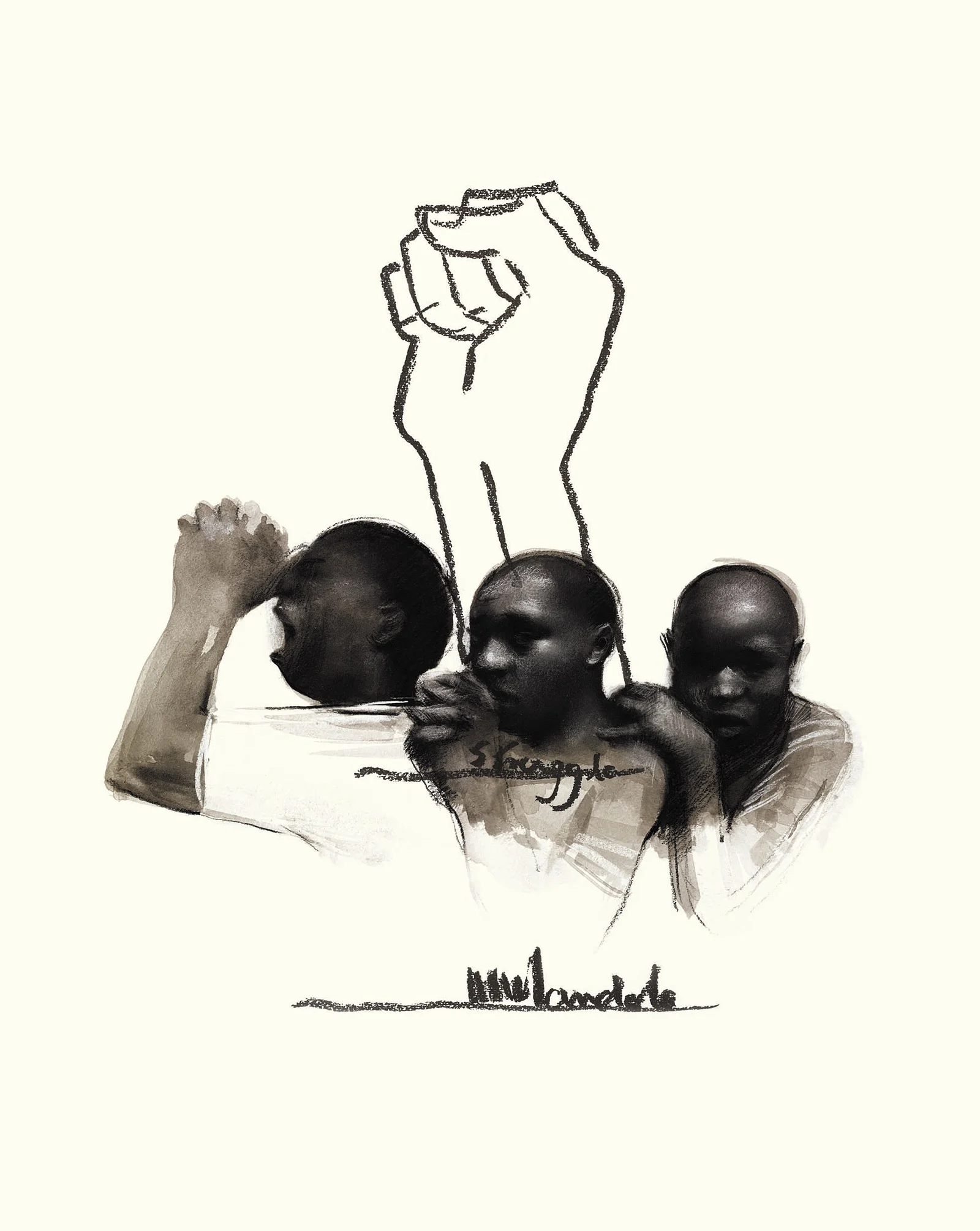
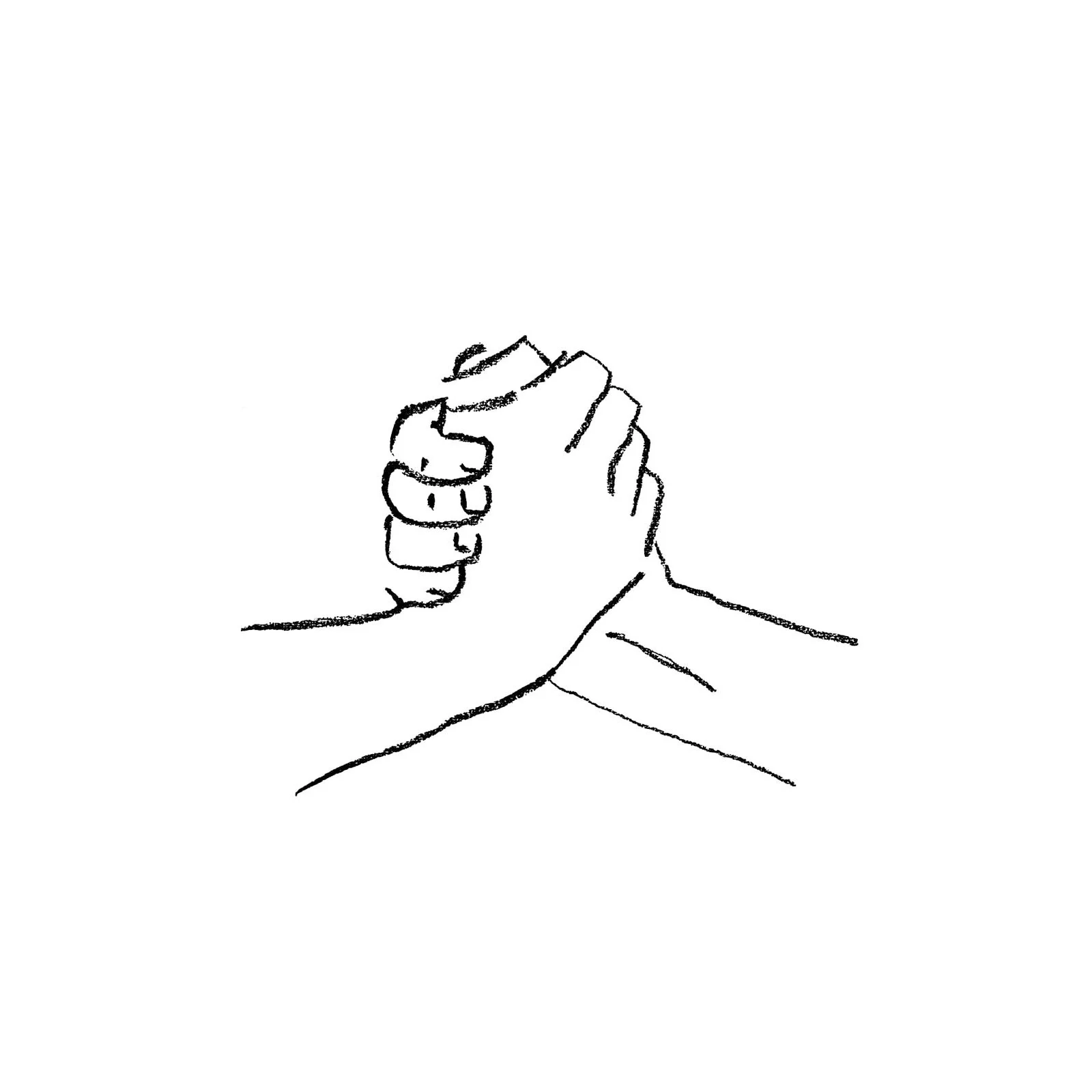
To mark what would have been Nelson Mandela’s 100th birthday, artists from around the world were asked to respond to his Struggle sketches with their own works, which together form the Unity series. Here, six image-makers discuss Mandela’s legacy and how they approached this once-in-a-lifetime commission.
To find out more about Nelson Mandela's artwork and to buy original pieces, visit the House of Mandela here
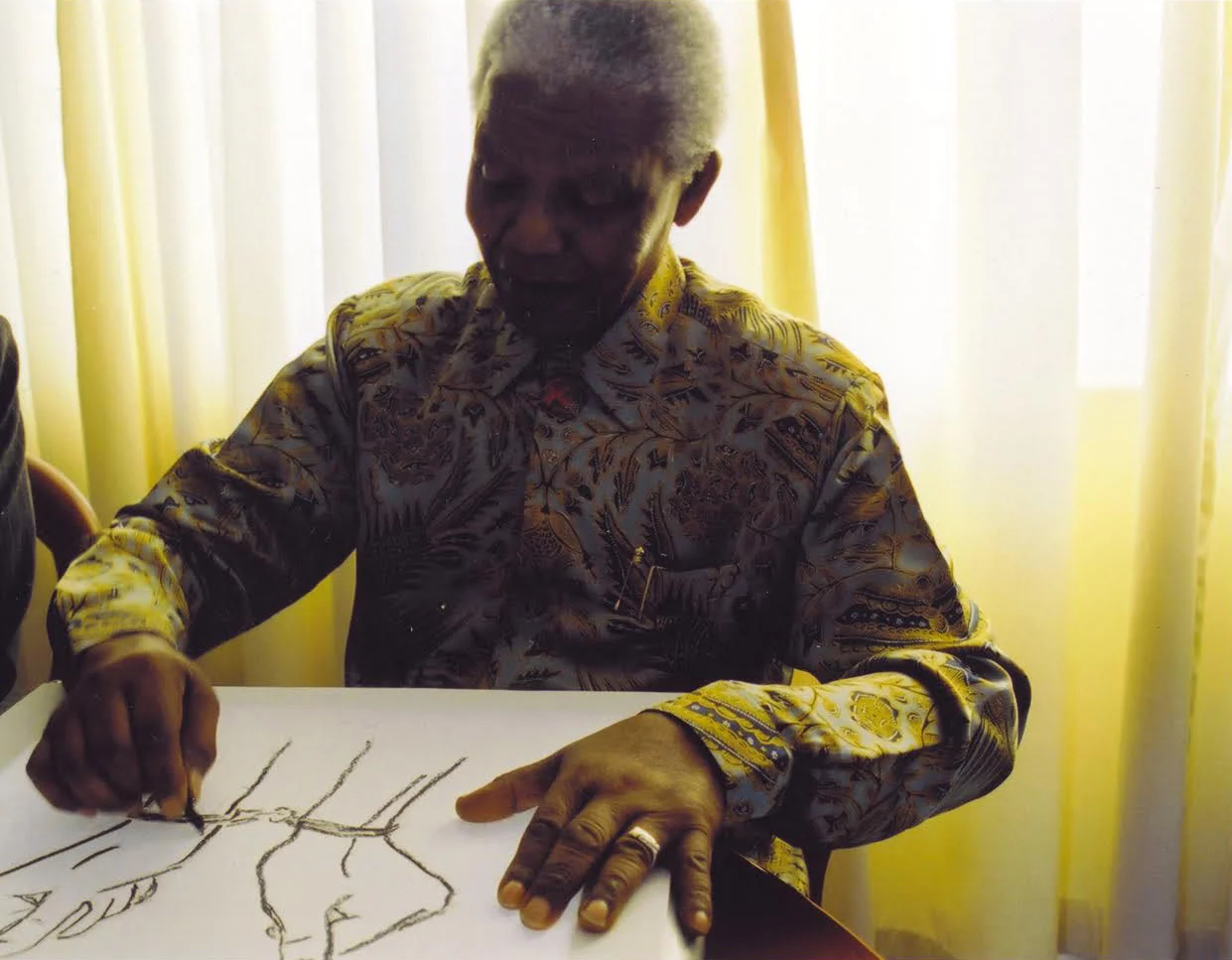
Portrait of Nelson Mandela by Grant Warren
Despite enormous challenges, Mandela fulfilled his soul-calling by remaining focused and true to his life’s purpose.
Struggle series
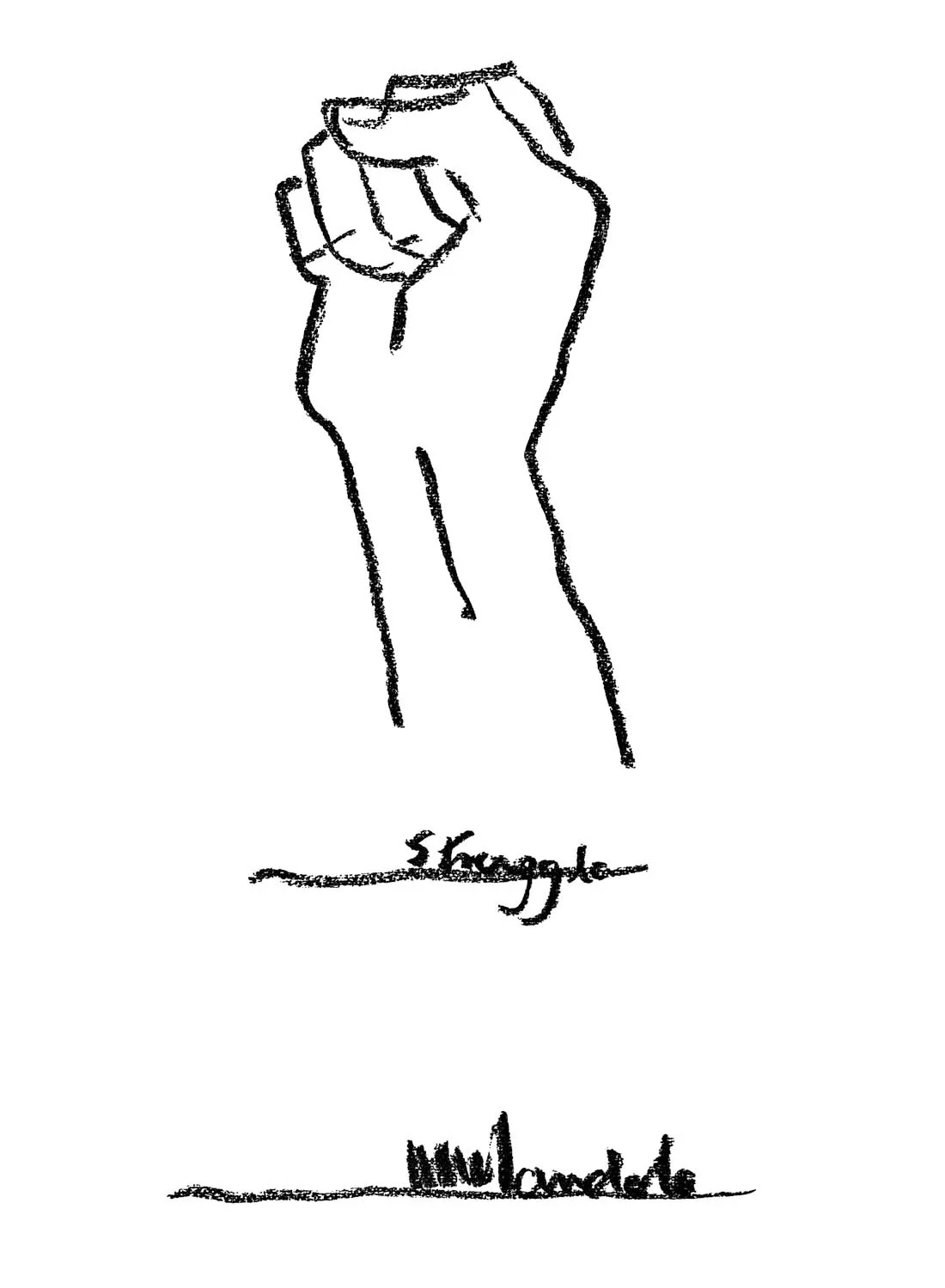
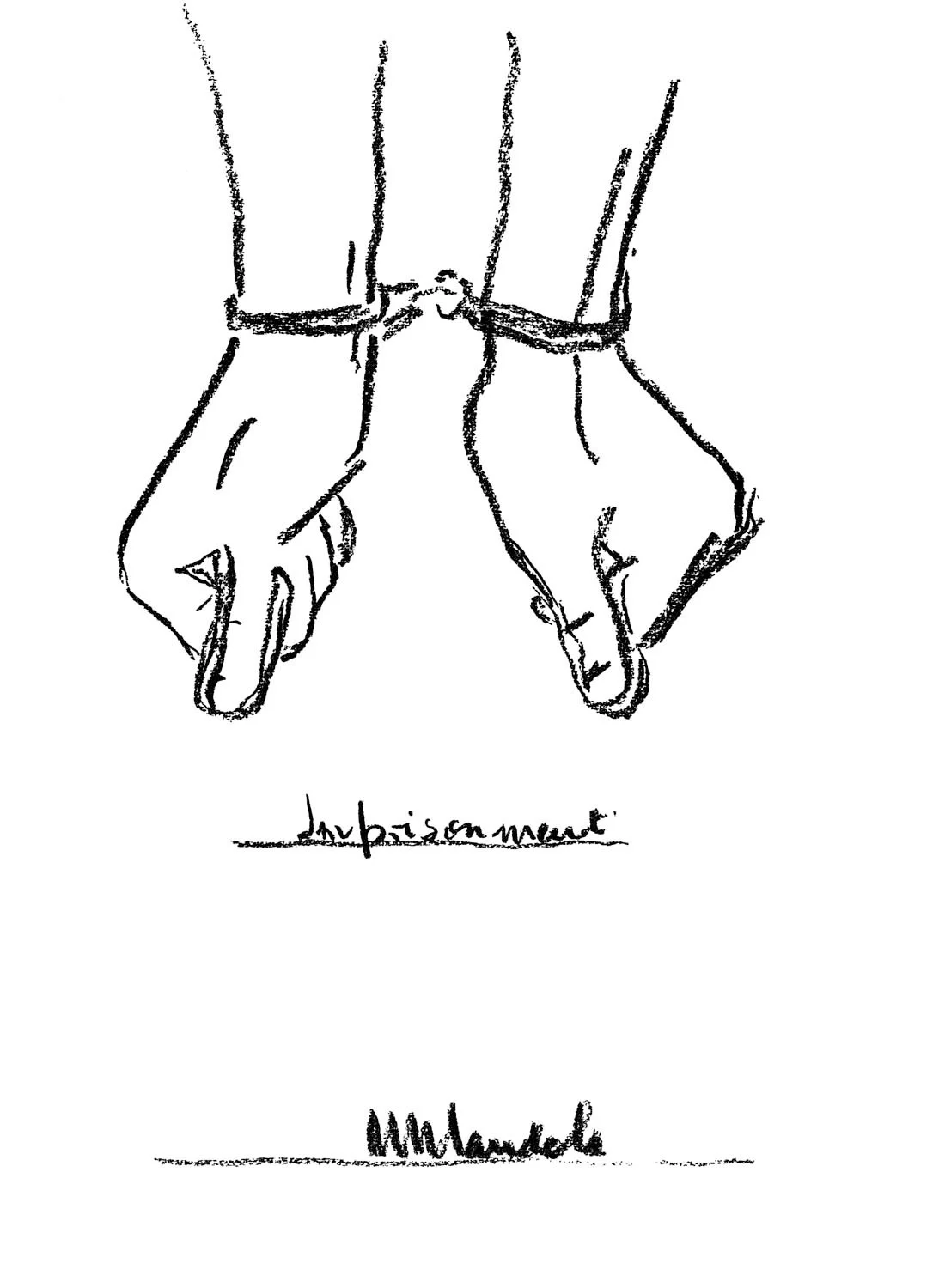
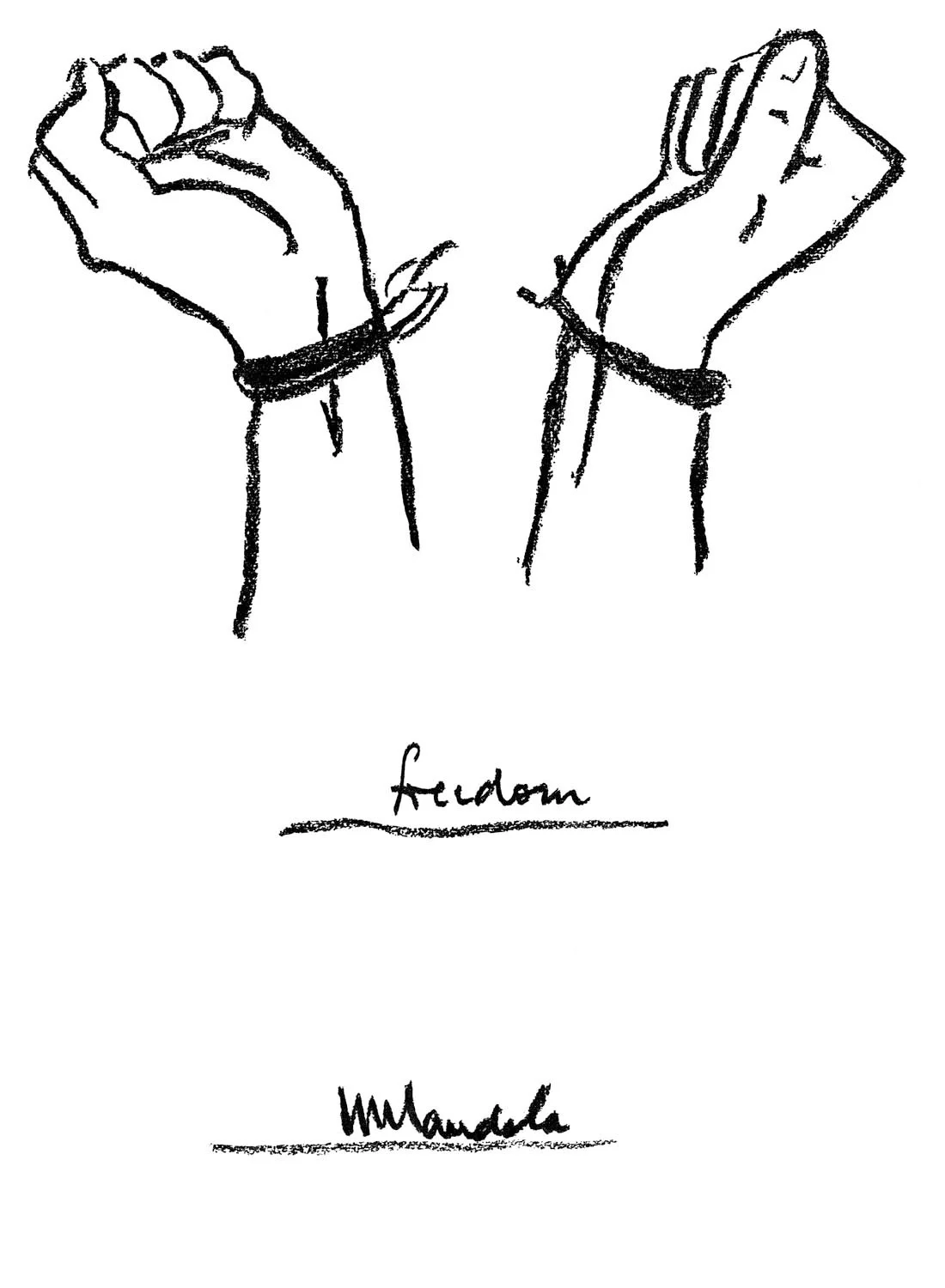
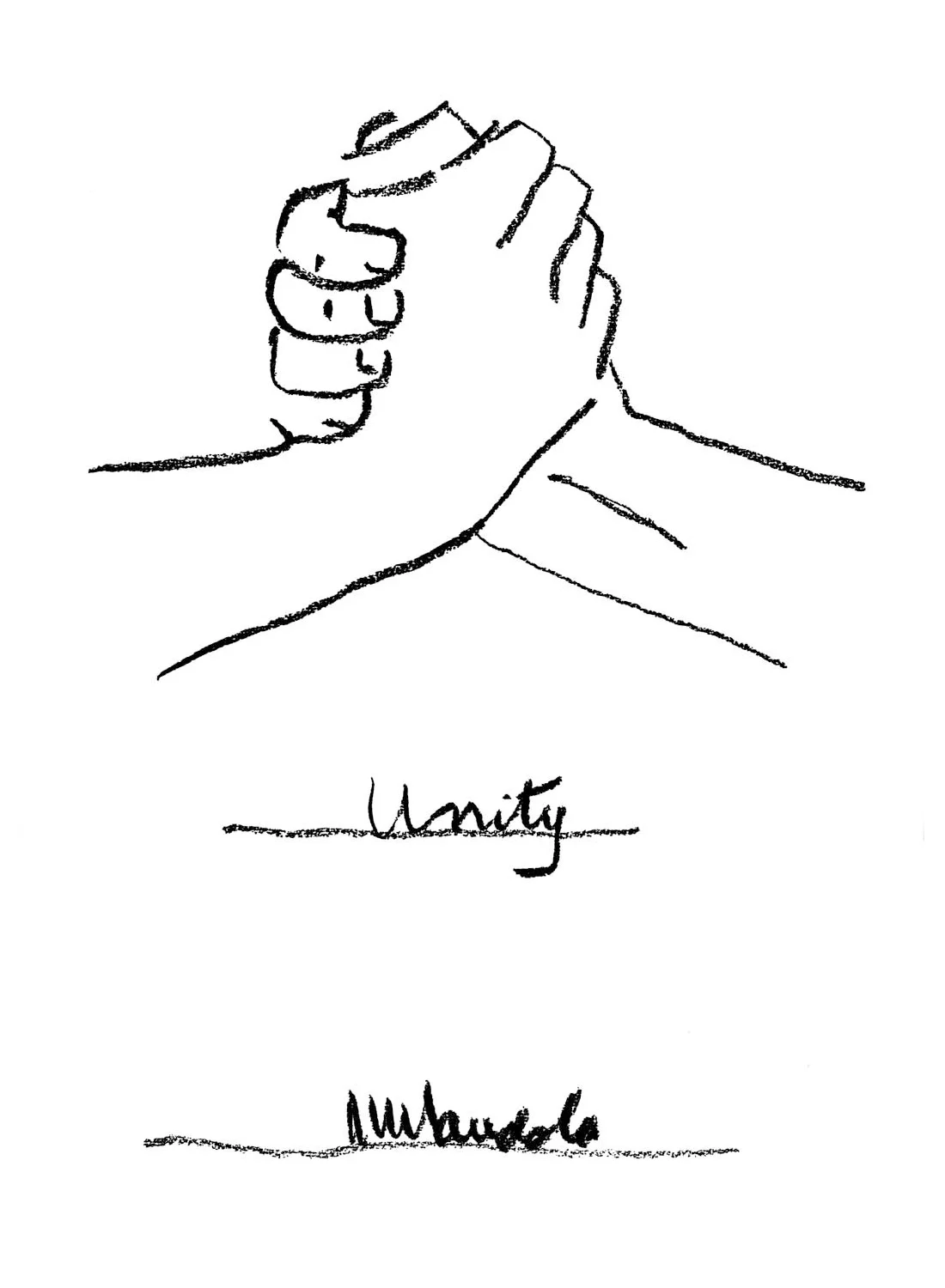


Unity series
Lene Pienaar, South Africa
Material: Oil on cotton paper
Nelson Mandela was an example of a man standing for his beliefs against all manner of internal and external odds. To speak of unity and restoration is an easy thing. But to spend nearly three decades in prison and then be handed the power to take retribution and – in the face of that – to choose forgiveness? That is something the likes of which the world has seldom seem.
Nelson Mandela's legacy echoes on beyond the grave. I believe that more now than ever, his choice poses a question to us all – what would you and I do under the same circumstances? Could we choose love, forgiveness or kindness when the world deals us loss and pain?
Thornton Dial, United States
Material: Pastel and acrylic on cotton paper
To me, Nelson Mandela represents the joys of the present and hope for the future, not the pain of the past. He learned from the past, and his ability to forgive and unite such a diverse array of people is inspiring.
It was easy for me to identify with Nelson Mandela’s sketches – I struggled to find my place on this blessed earth. Many of us share this common journey: for most we find that freedom is enough of a reward and rely on leaders like Mandela to unite us and take us into brighter futures.
What would you and I do under the same circumstances? Could we choose love, forgiveness or kindness when the world deals us loss and pain?
Shen Jawei, China
Material: Acrylic on cotton paper (deckle edged Hahnemühle Museum Etching, 350gsm)
Nelson Mandela is – not was – my hero. He was a great fighter for justice, equality and freedom, but many people have fought for those things – he is a hero because he understood what tolerance means. Reconciliation is his legacy to us, without reconciliation there will never be peace.
Remember this great man. Treasure the legacy which he left us. Do something to make our world better.
Anna-Bella Geiger, Brazil
Material: Photo-engraving in metal, silk screen, collage, burnt leaf, India ink, colored pencil on cotton paper
To me, as an artist committed to social justice also within my own work, Mandela means the struggle for justice in its broadest sense – not just ethnic but social, religious and so on. In Brazil, where I’m from, we should listen to his advice more.
From the starting point of his original drawings printed in black, I developed many layouts. But besides conceptual possibilities, based on Mandela’s titles, there were also technical challenges – whatever was to be overprinted on his lithographs needed to permit a crisp and clear vision of Mandela’s graphic representation. The only possible solution was to employ transparent silkscreen inks. This did not mean limiting myself to light colors though as I wanted more intense colors for the more dramatic subjects – pure blue, dark violet and camouflage green.
Passion and emotion, when combined with spirituality, can overcome even the greatest of challenges.
Gabrielle Pool, New Zealand
Material: Oil and charcoal pencil on cotton paper
Nelson Mandela was an incredibly humble and selfless leader; a man of integrity who understood the power of compassion and forgiveness. I strongly believe we each possess a “soul calling.” Despite enormous challenges, Mandela fulfilled his soul calling by remaining focused and true to his life’s purpose.
My ancestral heritage is deeply rooted in New Zealand’s indigenous Māori culture. This inspired my interpretation through Māori art and design – I used traditional symbols representing each word. The colors were also influenced by Māori culture, which exclusively uses red, black and white. The red symbolizes the universal color of blood; despite racial differences, we all bleed the same color.
Charlie Mackesy, United Kingdom
Material: Acrylic and charcoal
Throughout my youth I was exposed to the Free Mandela campaigns but it was only during my visits to the Southern African region that I started to fully comprehend the severity of the situation. For Nelson Mandela to endure such atrocities means he had one of the most spiritual minds, one that endured, then forgave. Passion and emotion, when combined with spirituality, can overcome even the greatest of challenges.
It was very hard for me to add anything to these powerful symbols Nelson Mandela had drawn. Where possible I have tried to create tender drawings; I wanted to underscore the emotion that is already present in the works.




